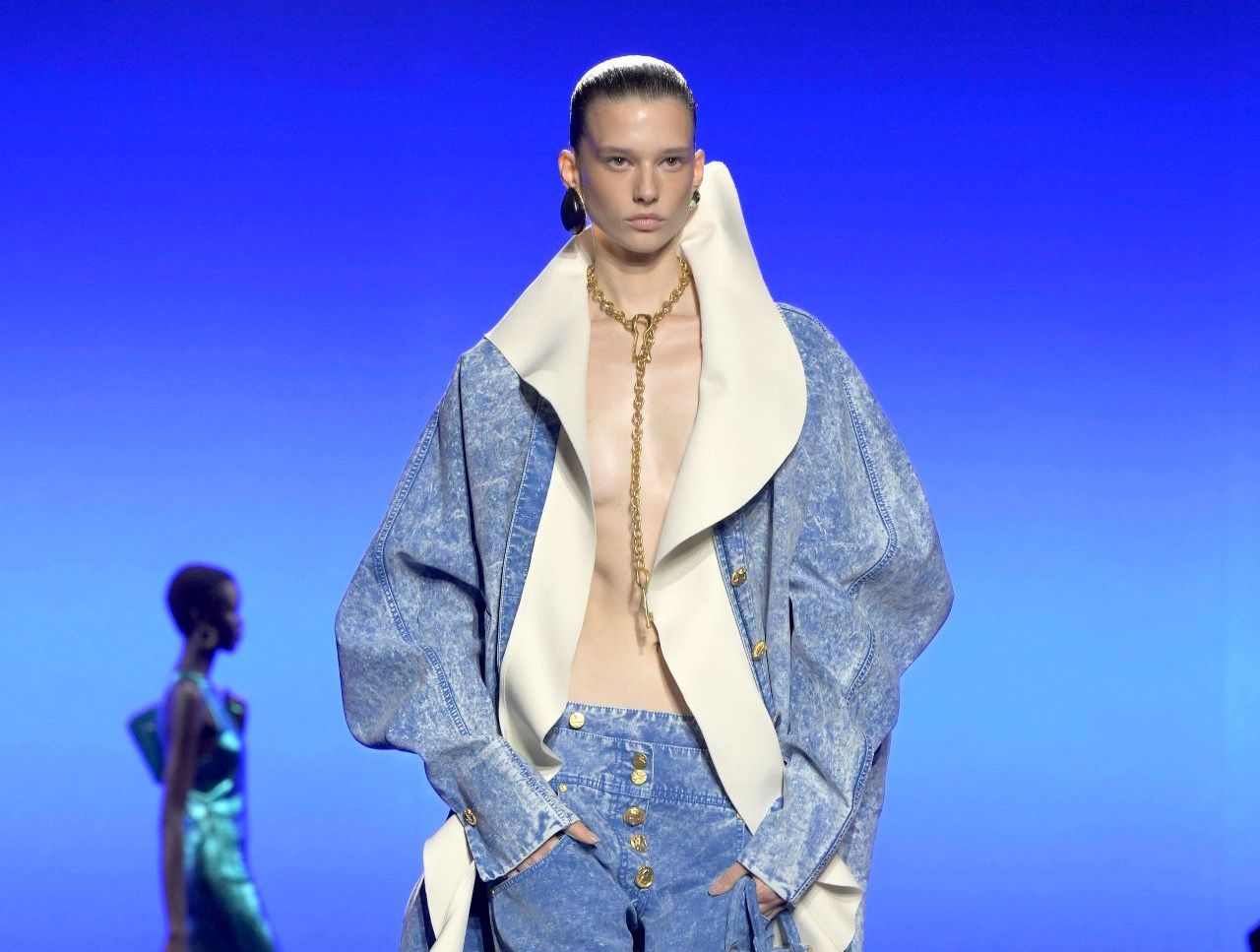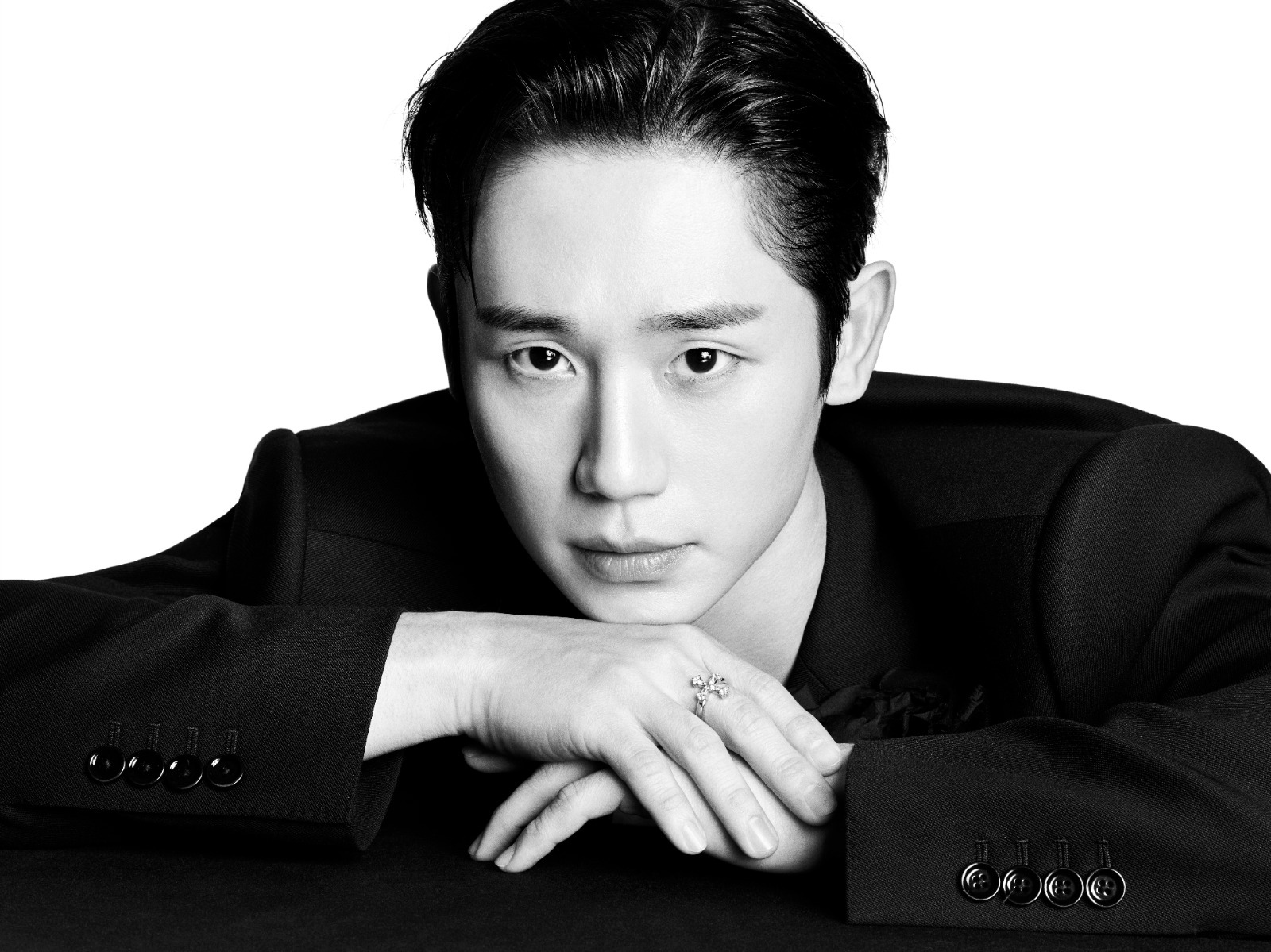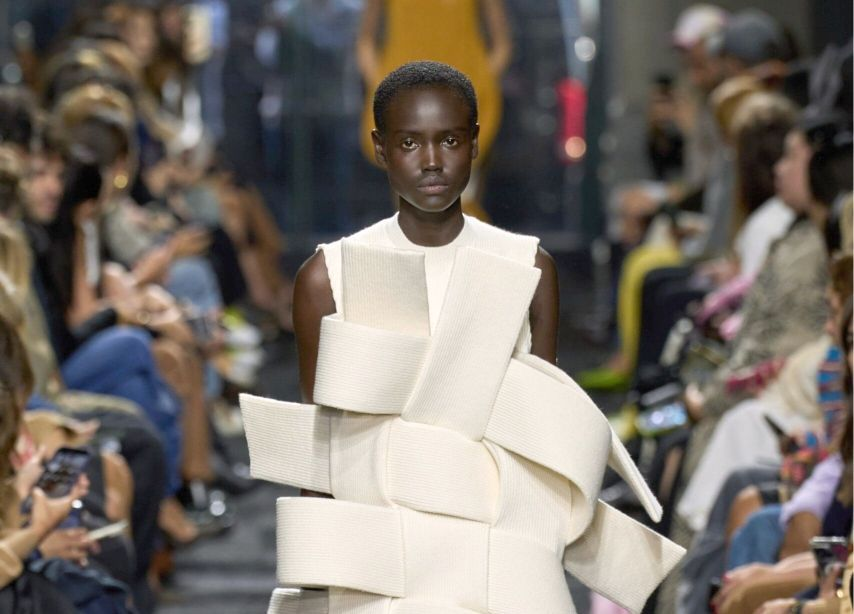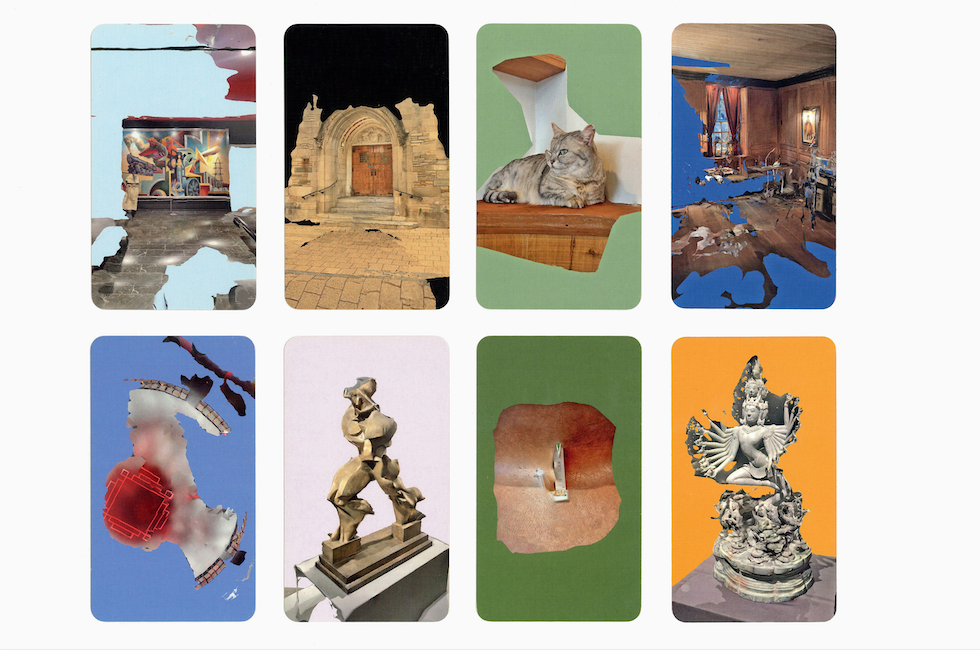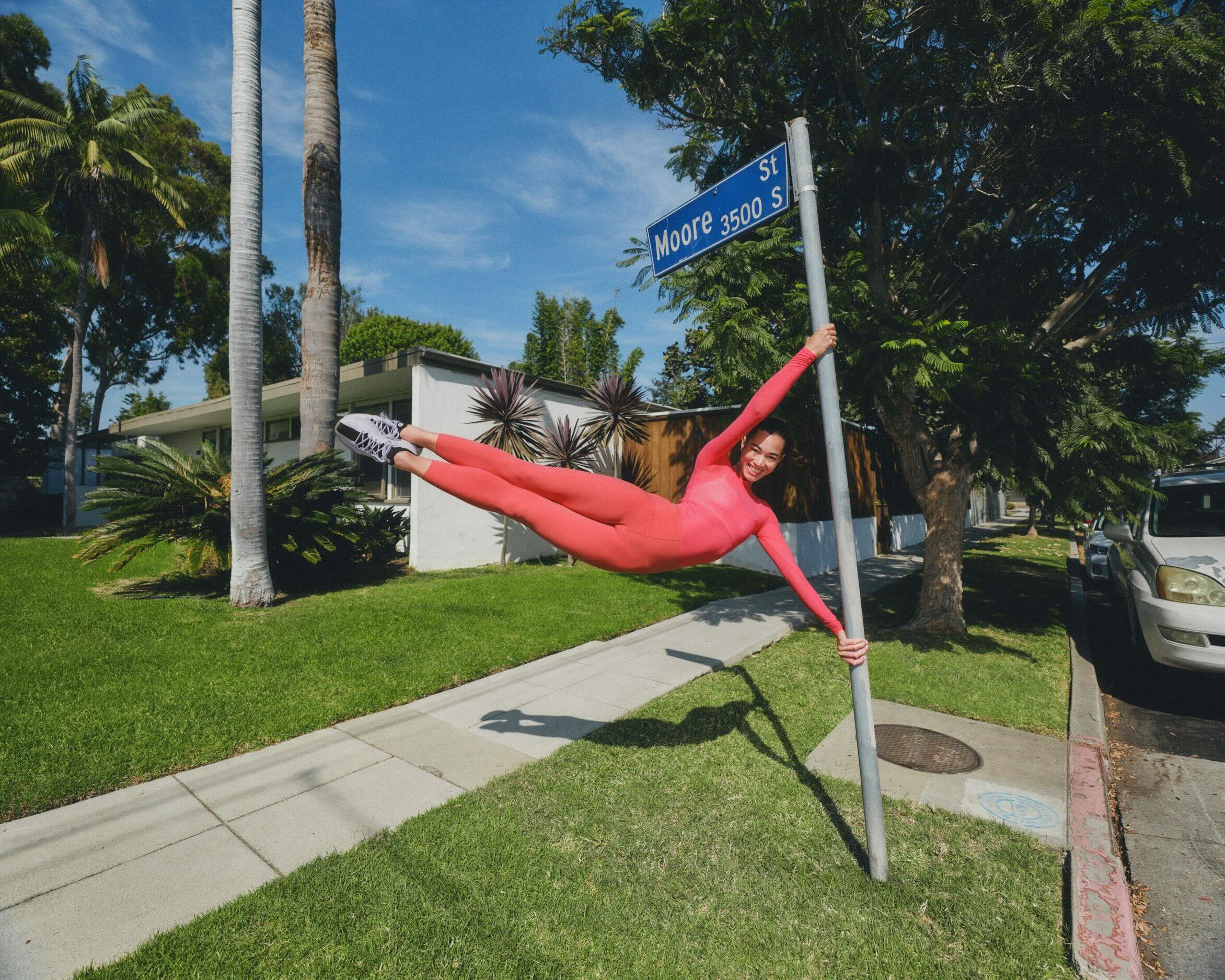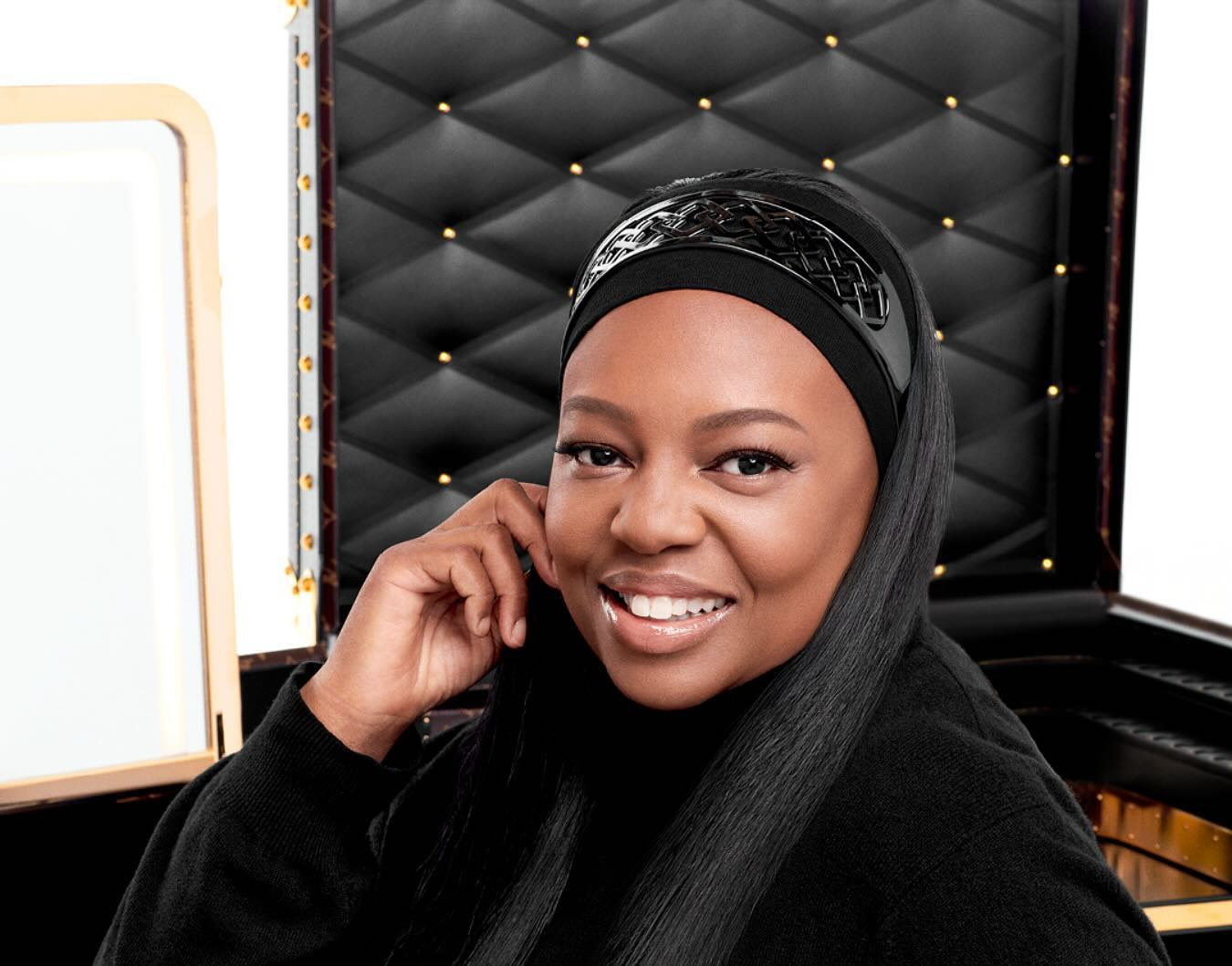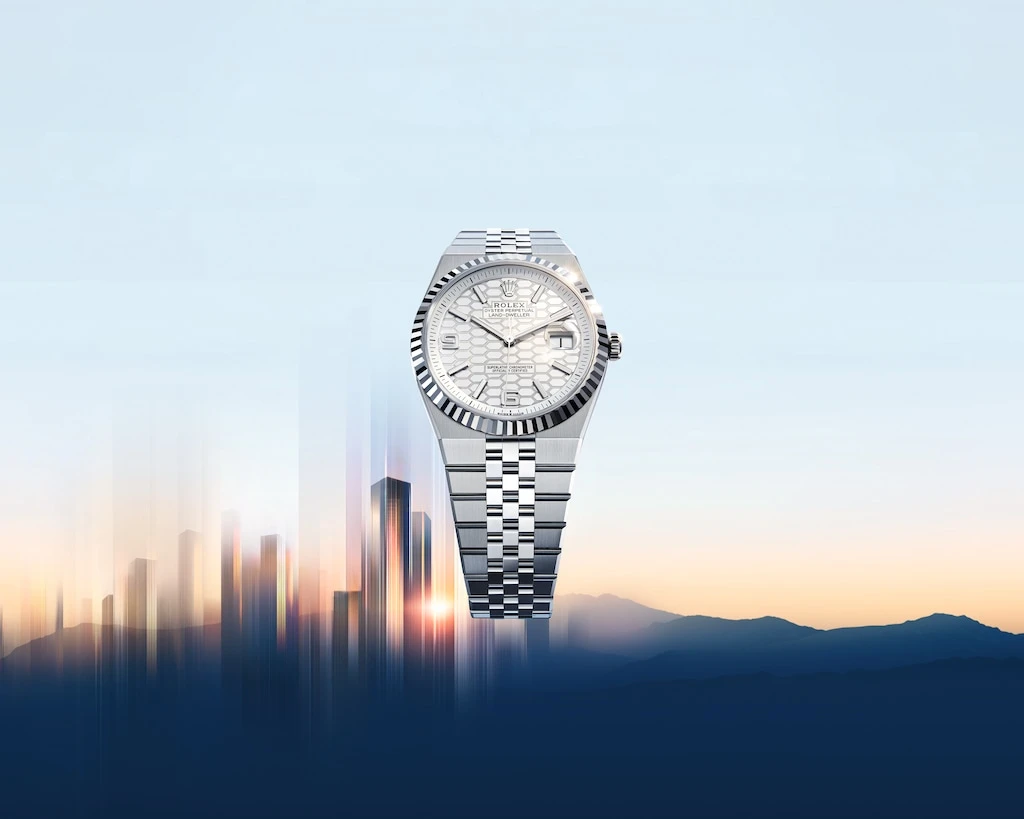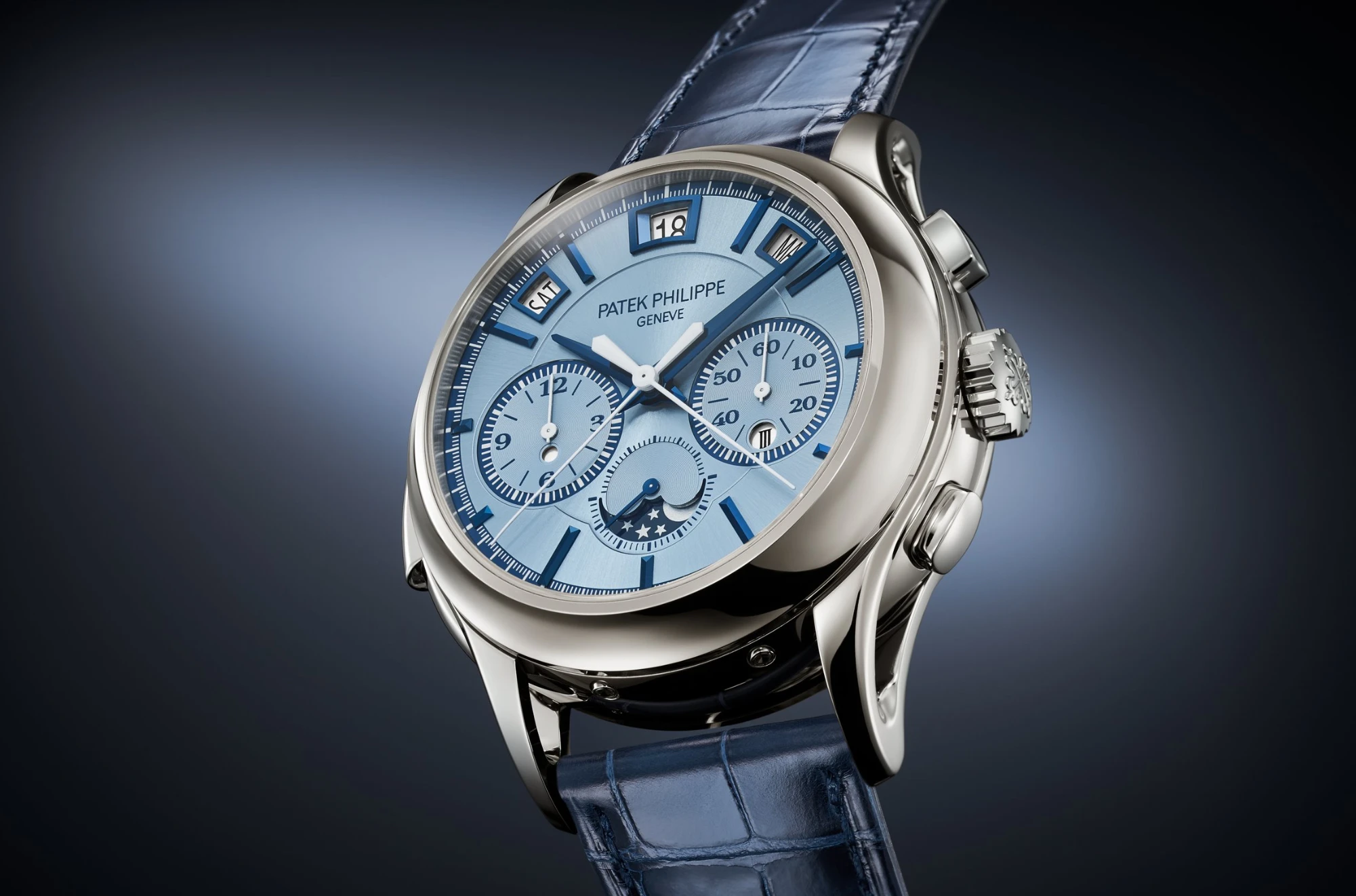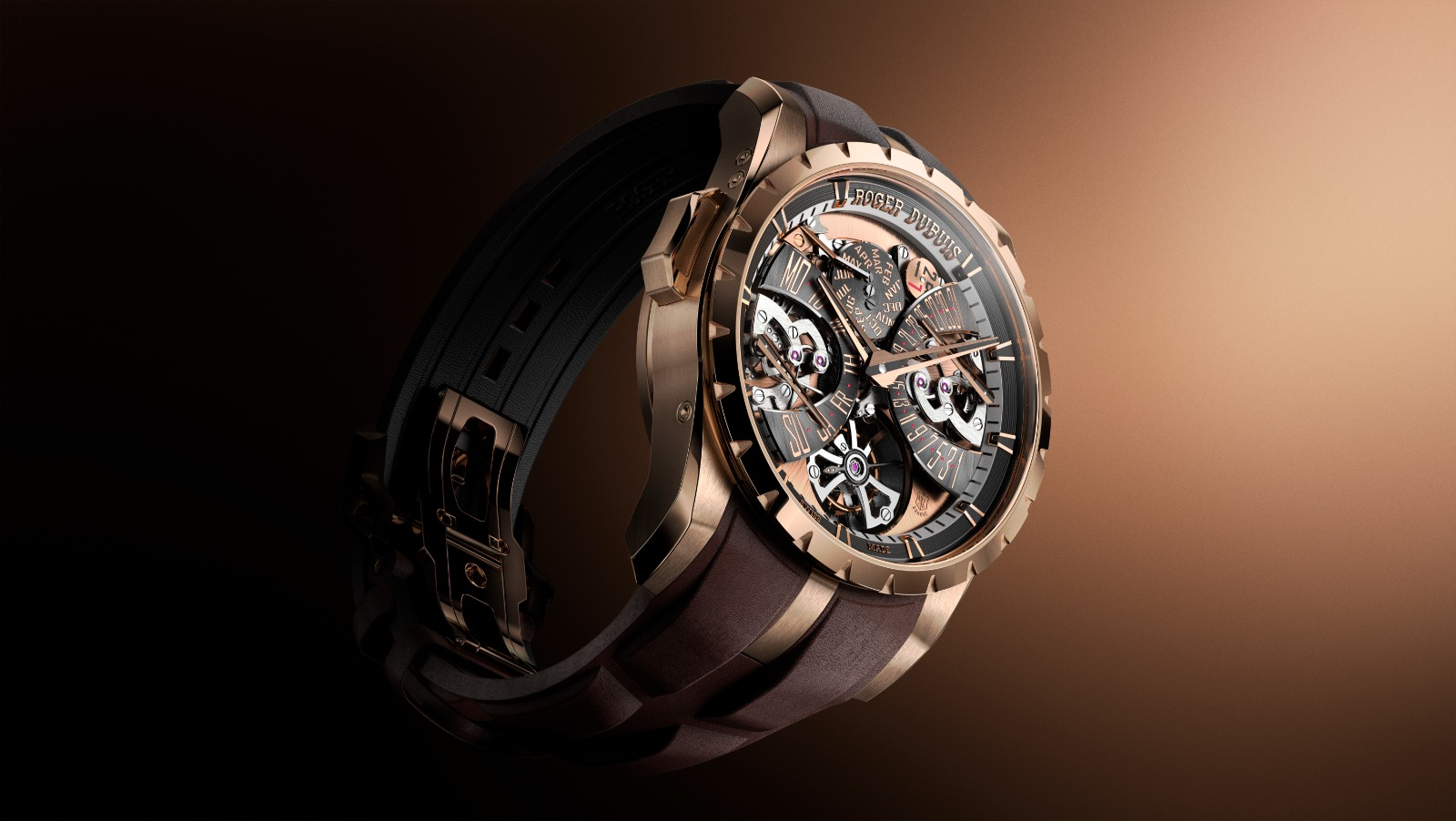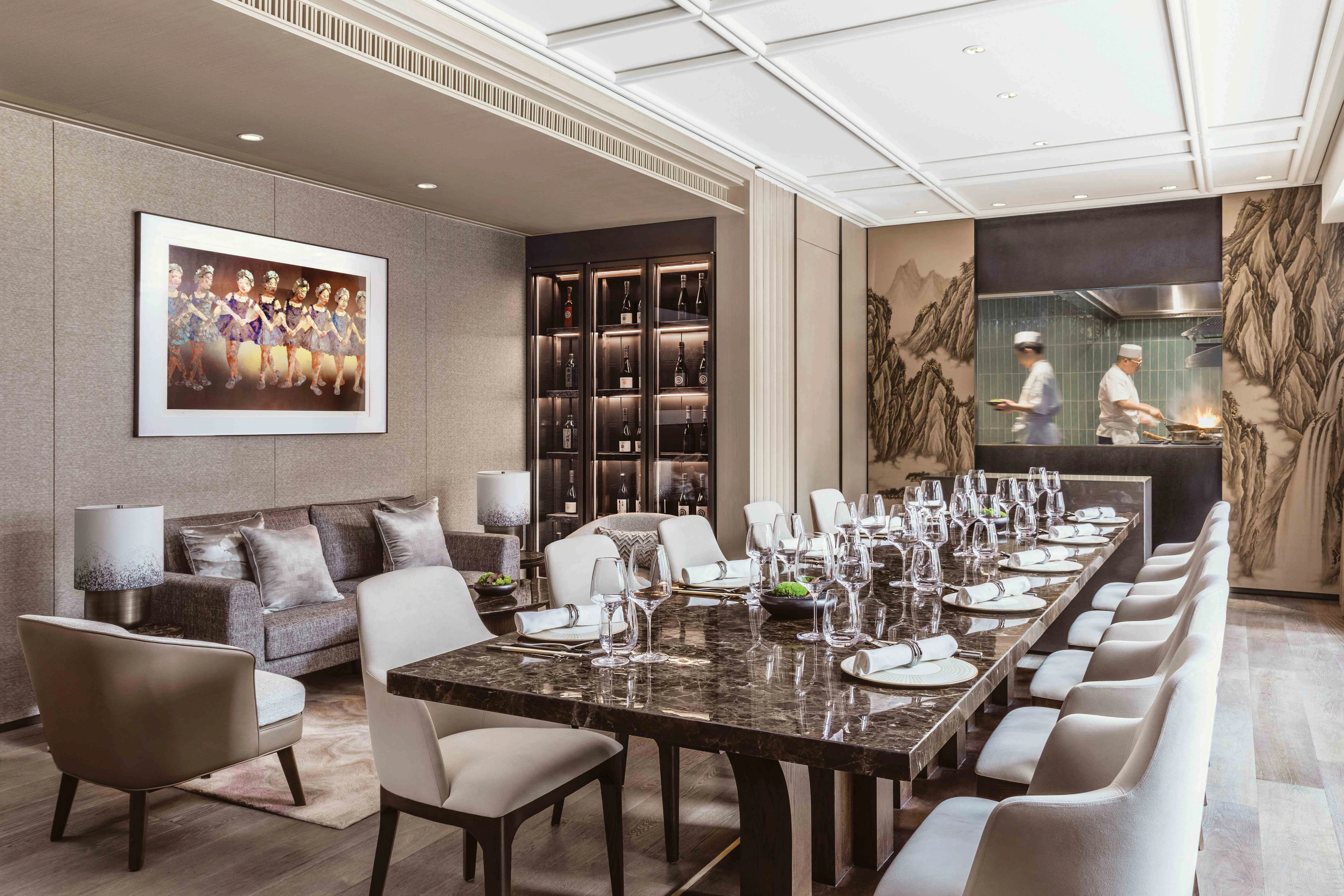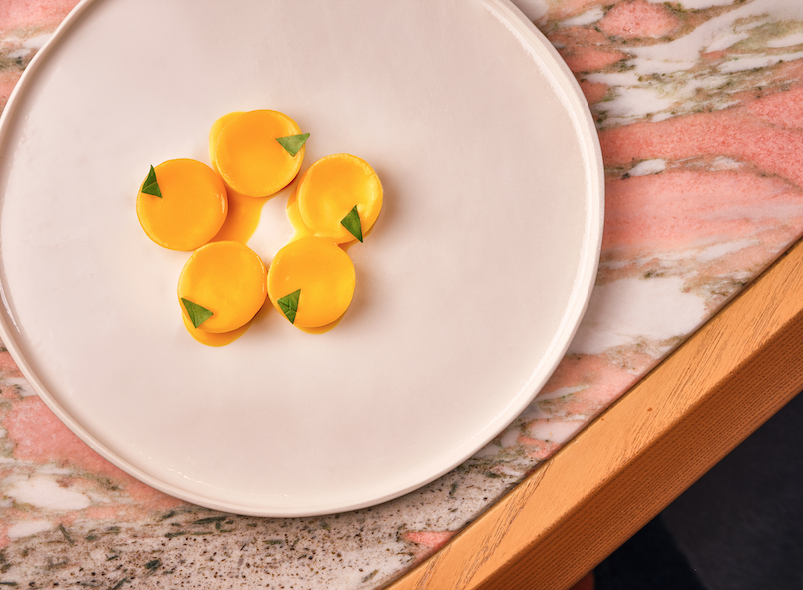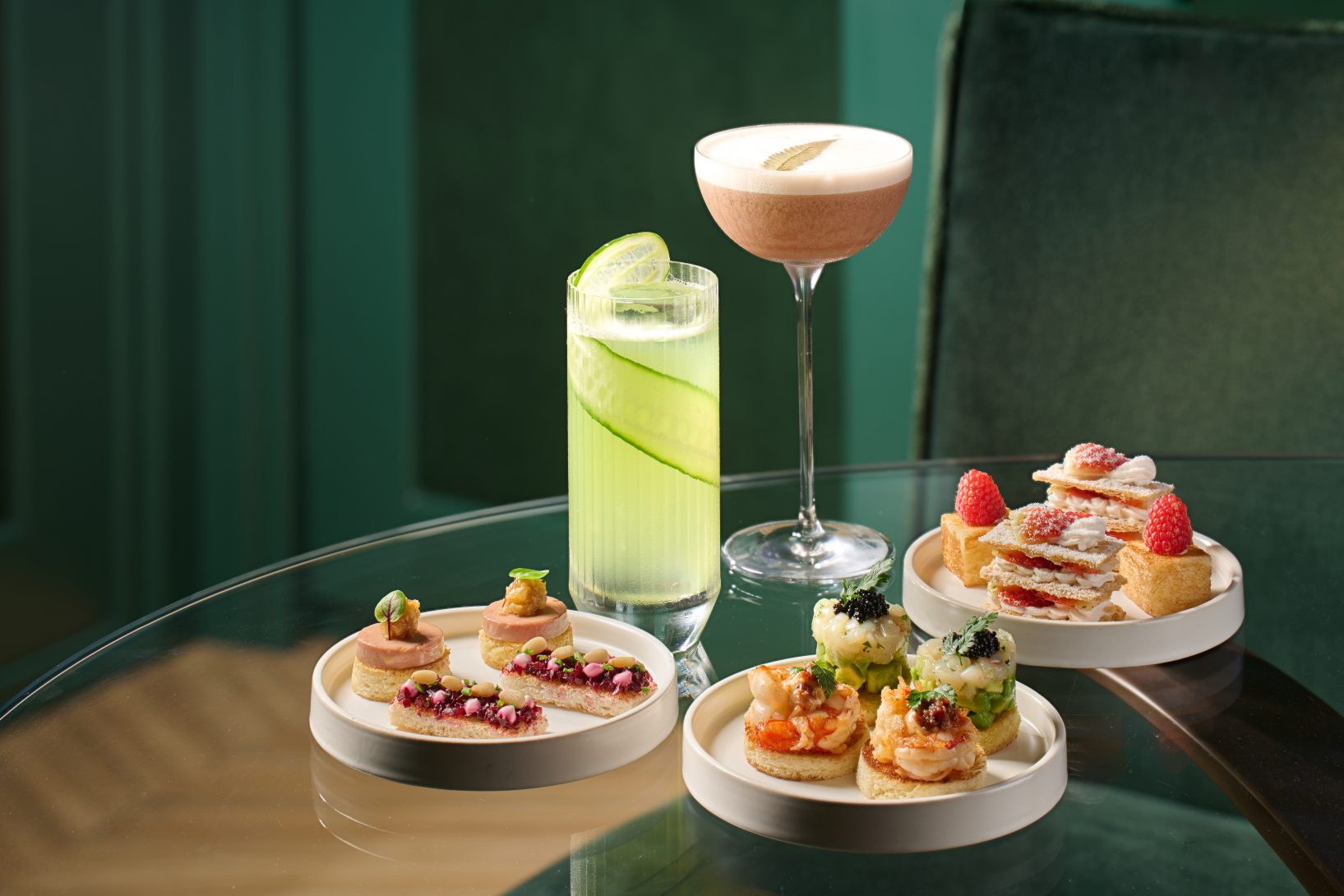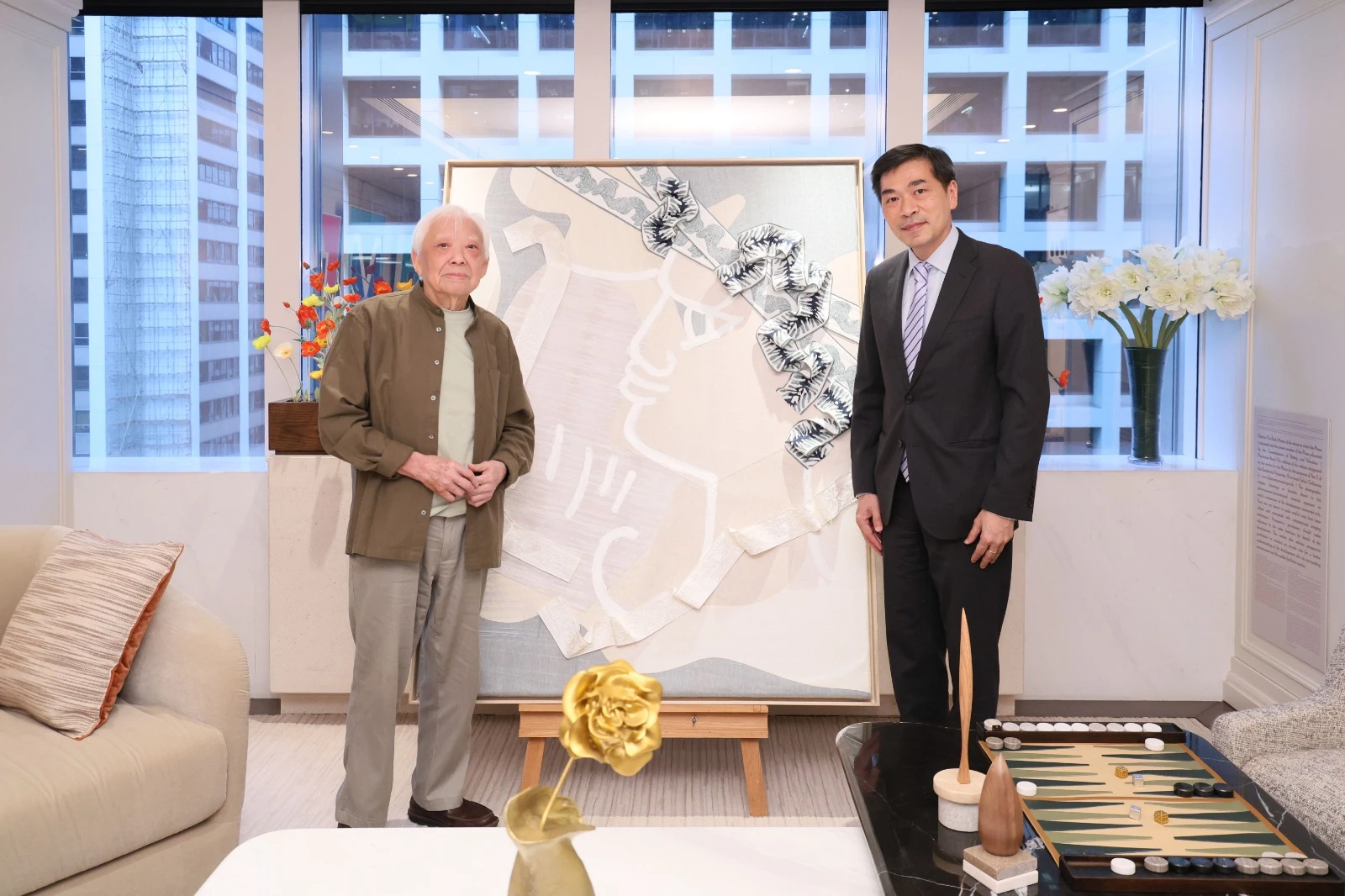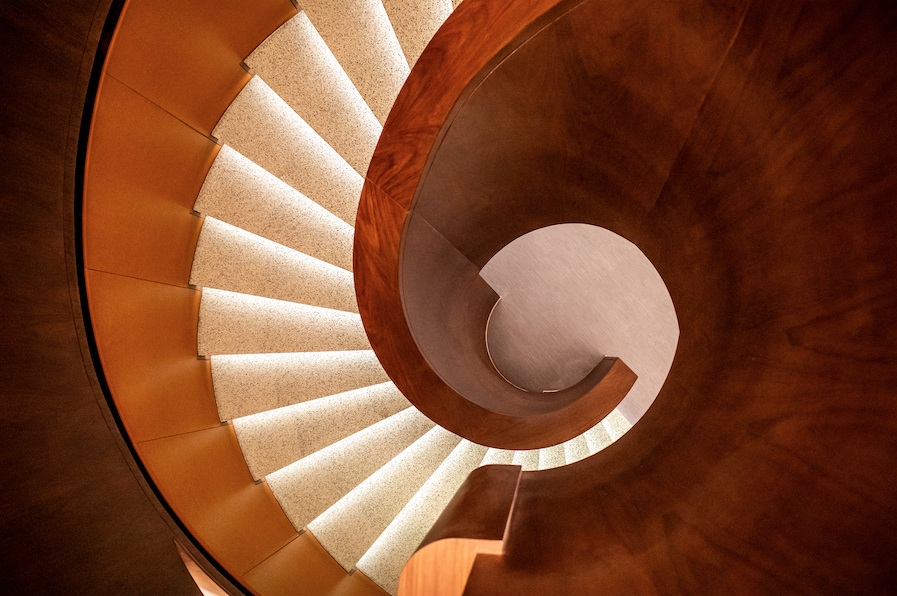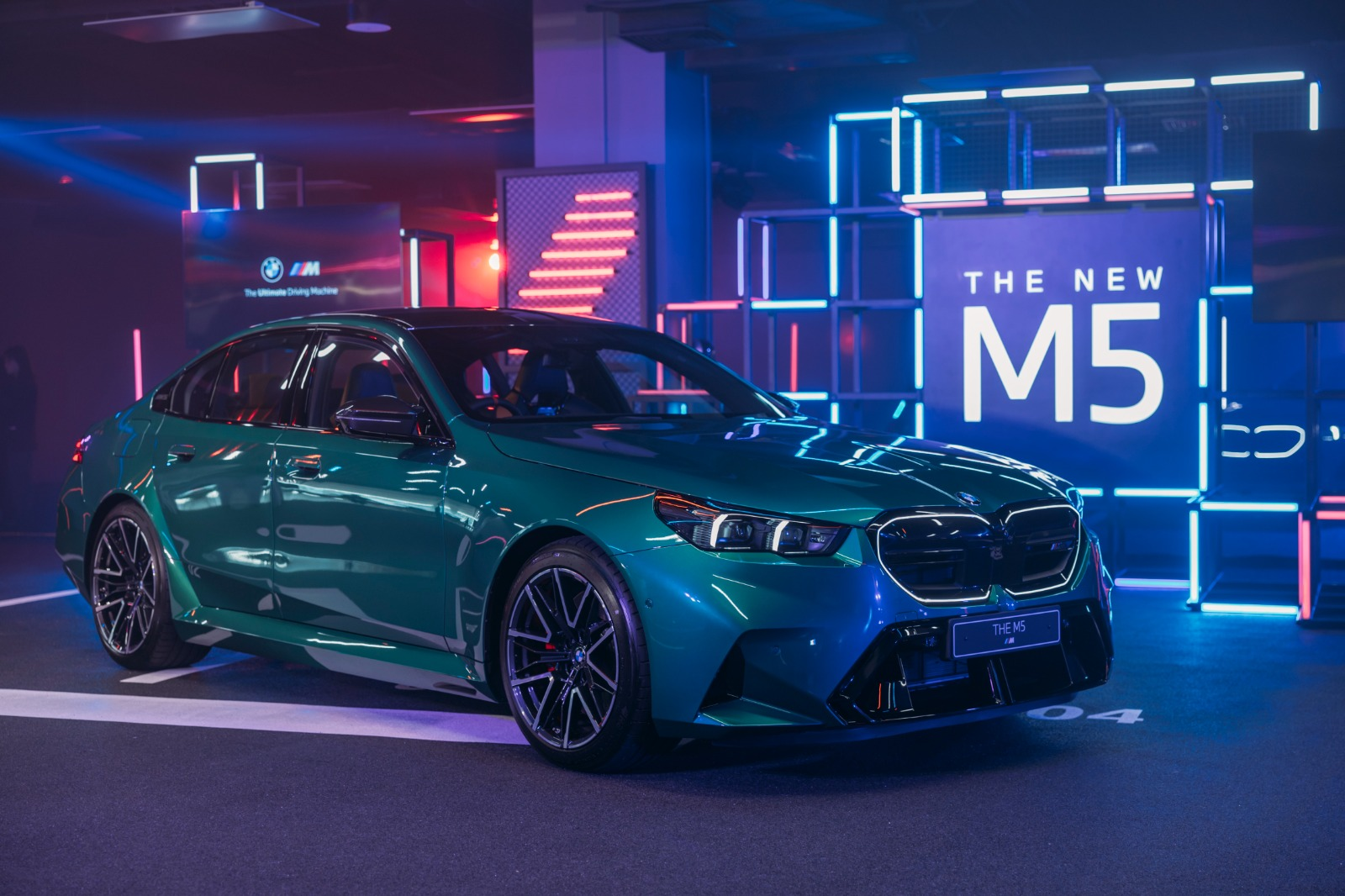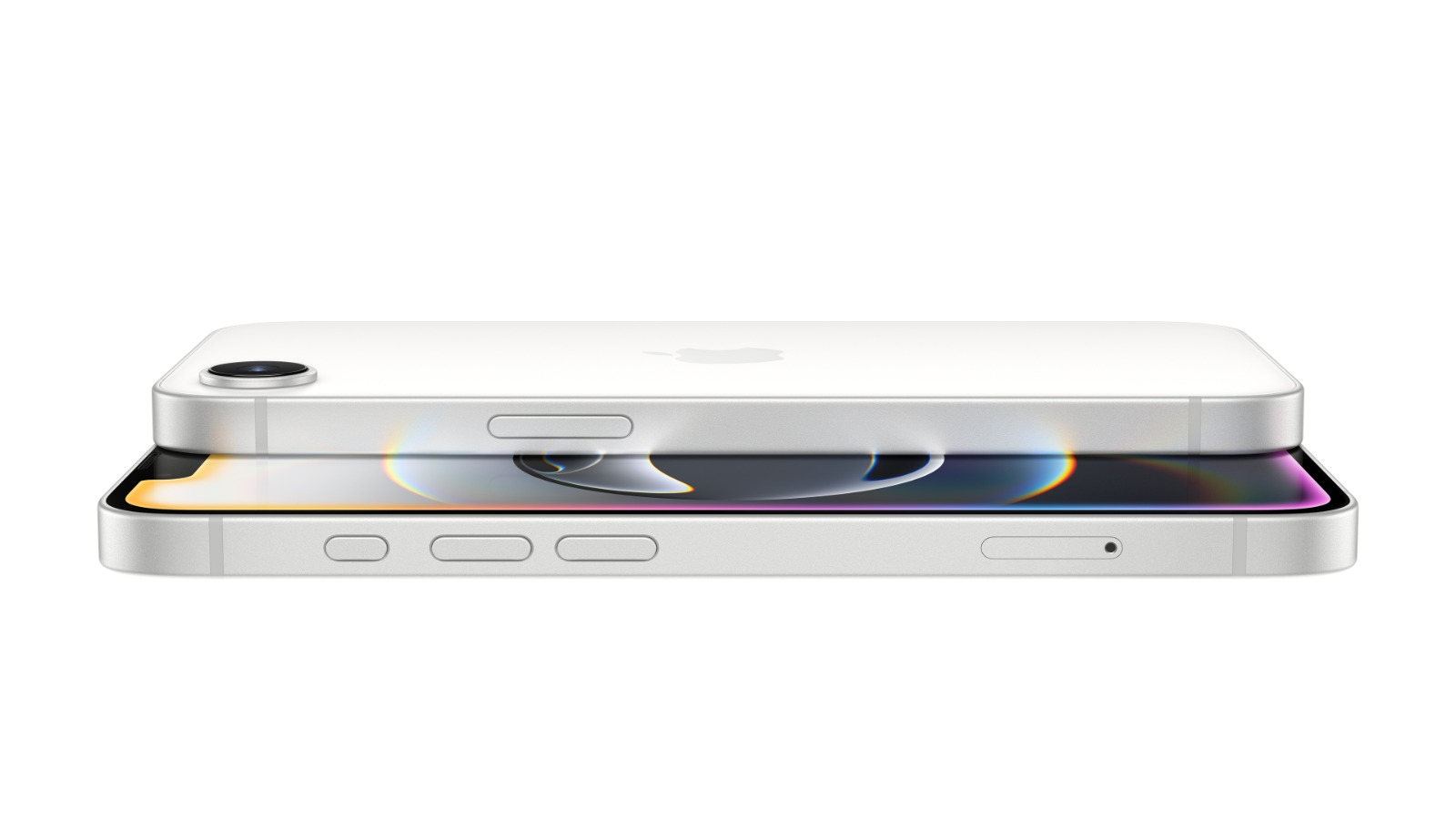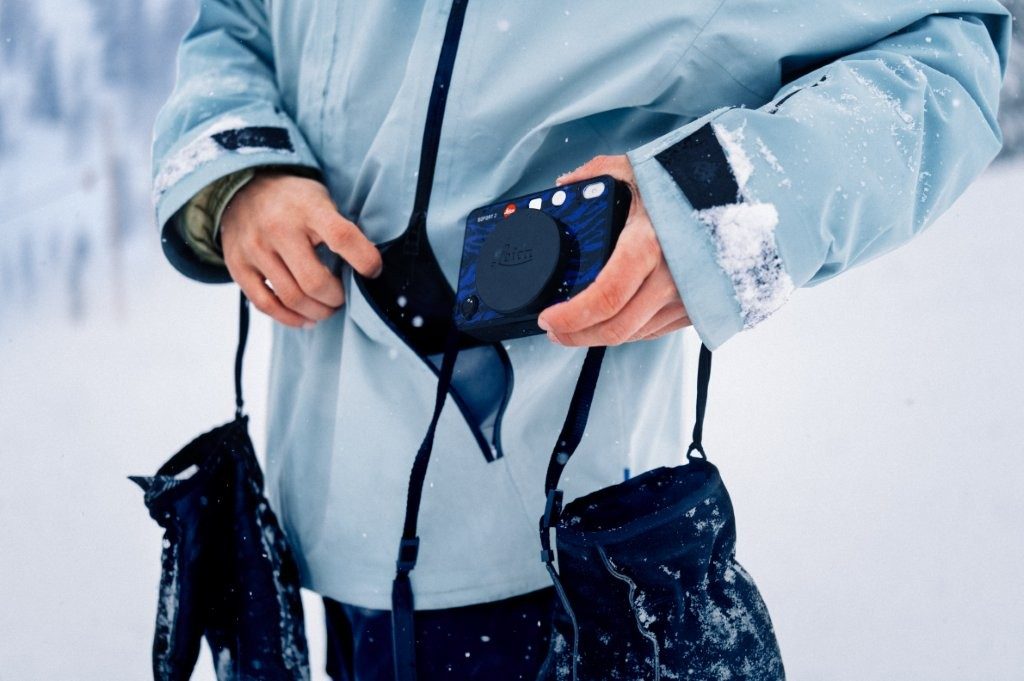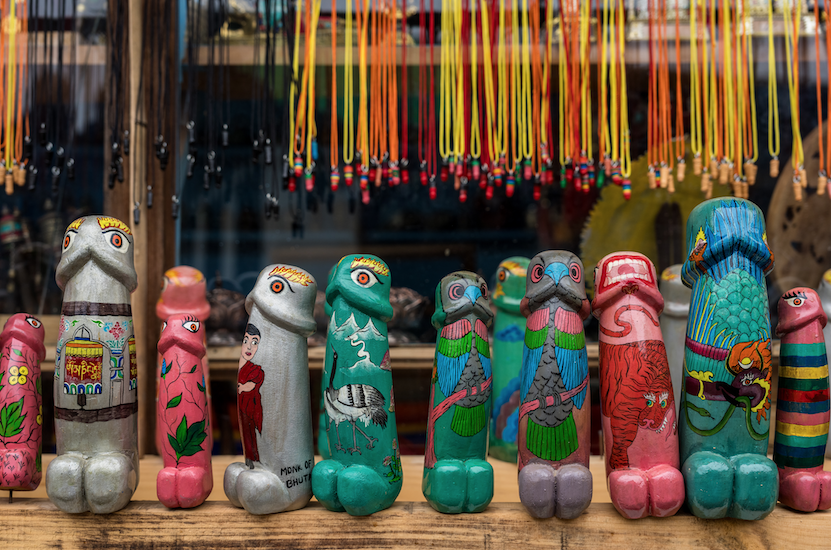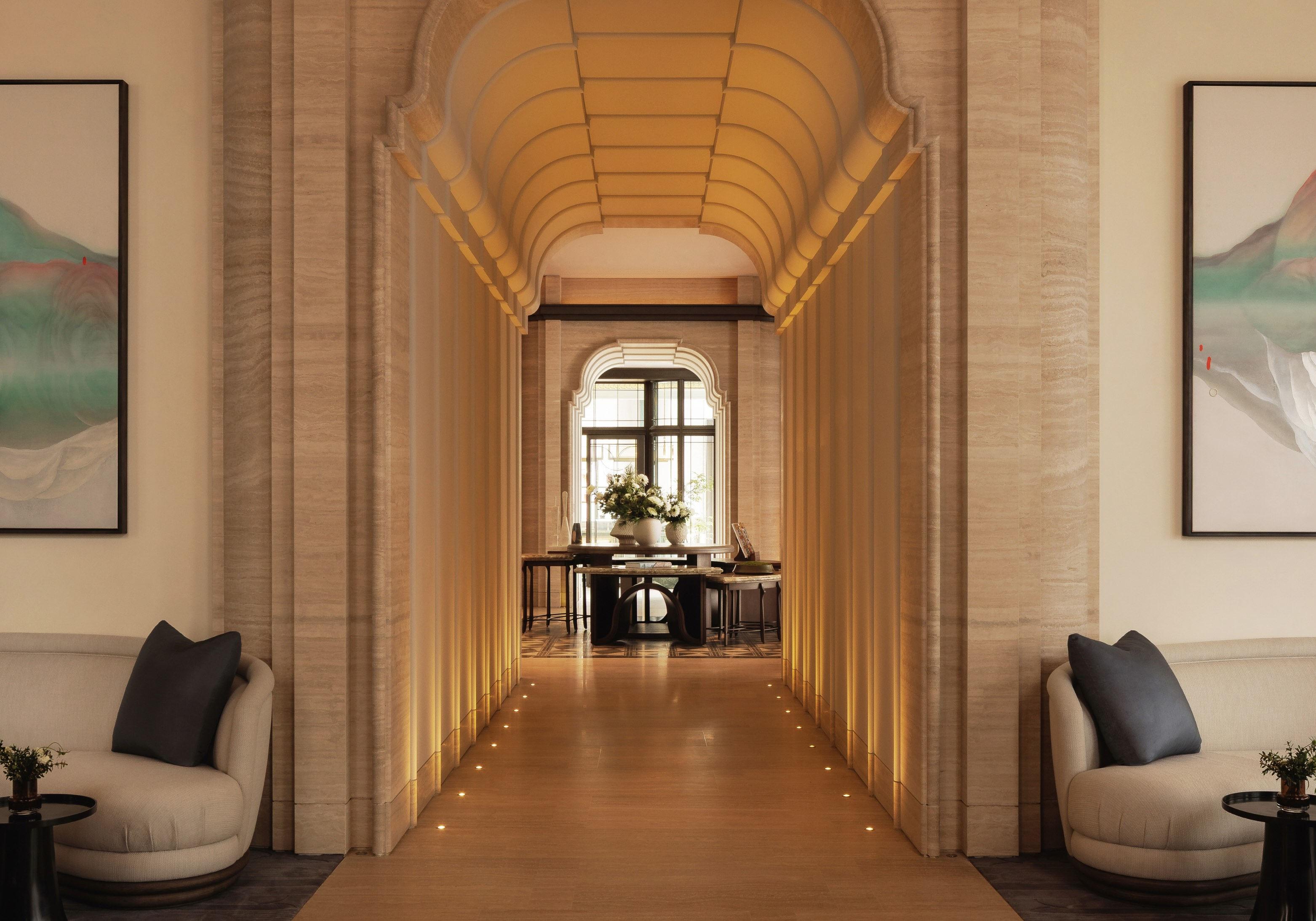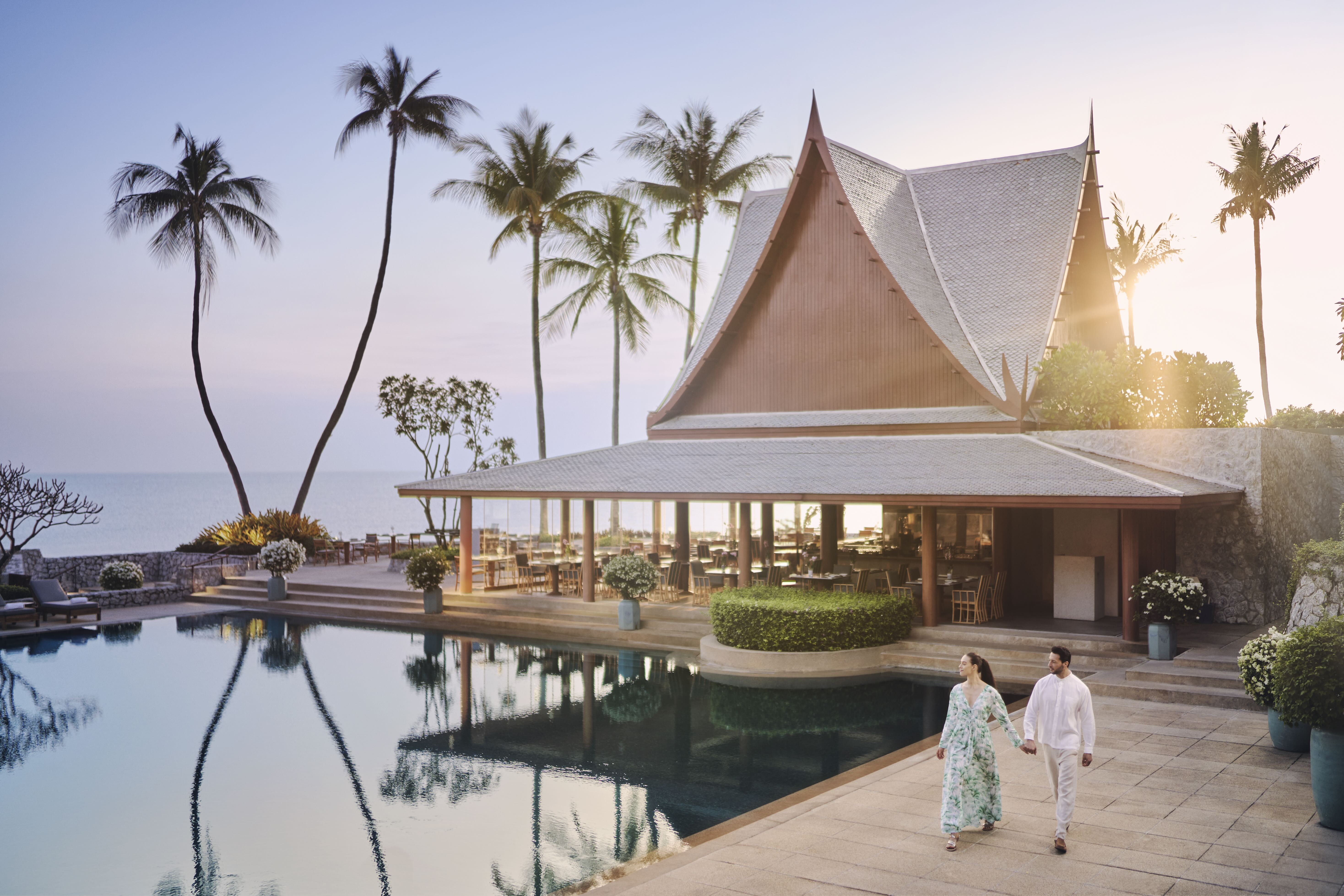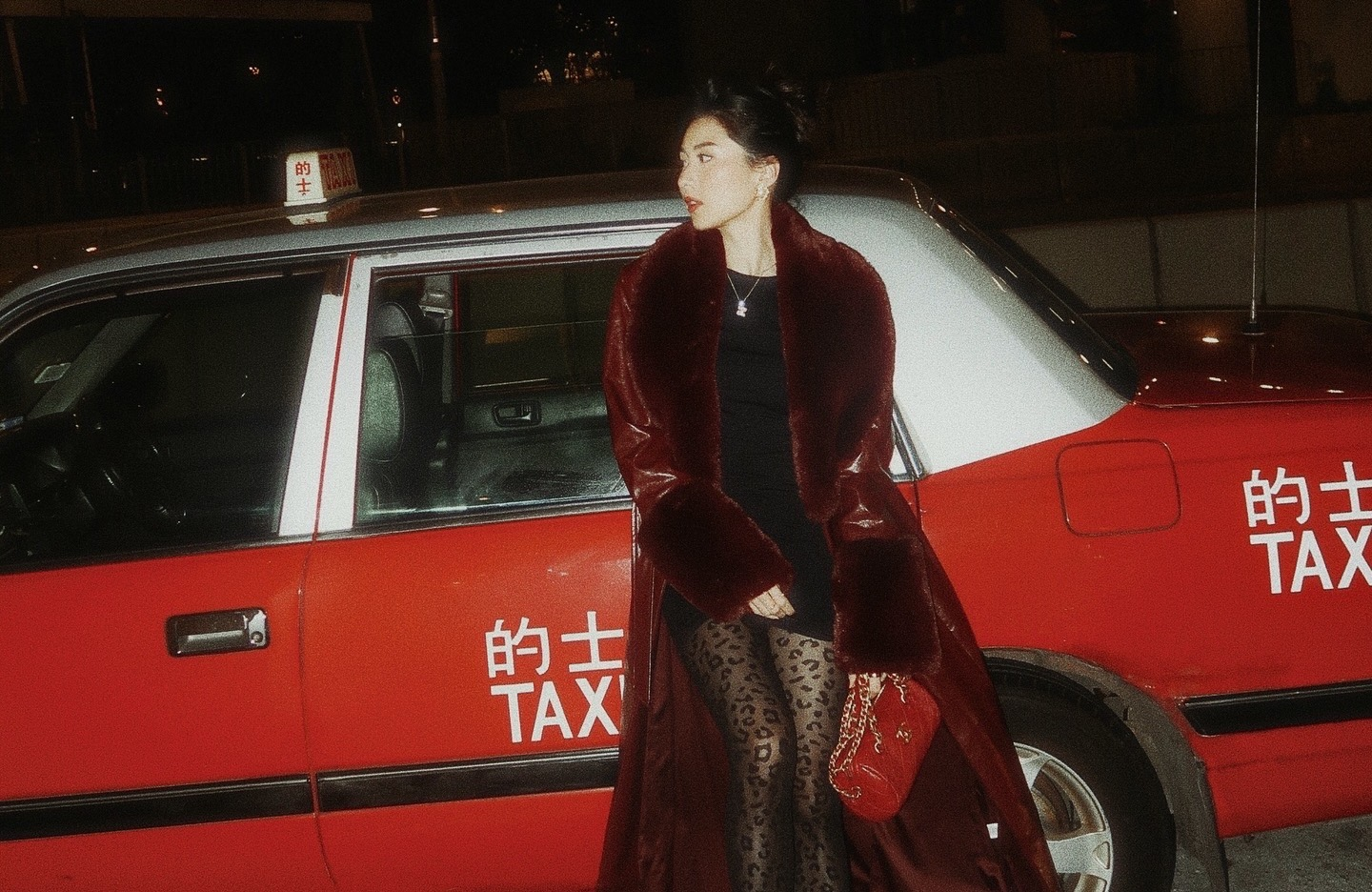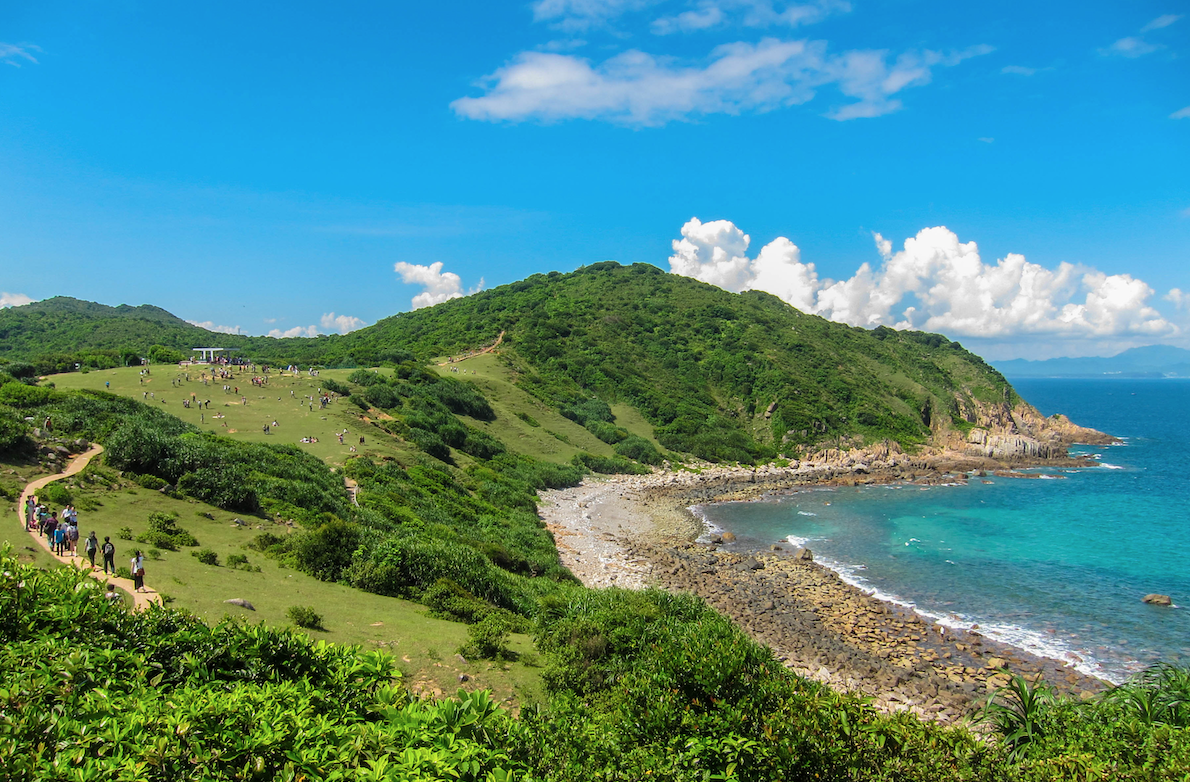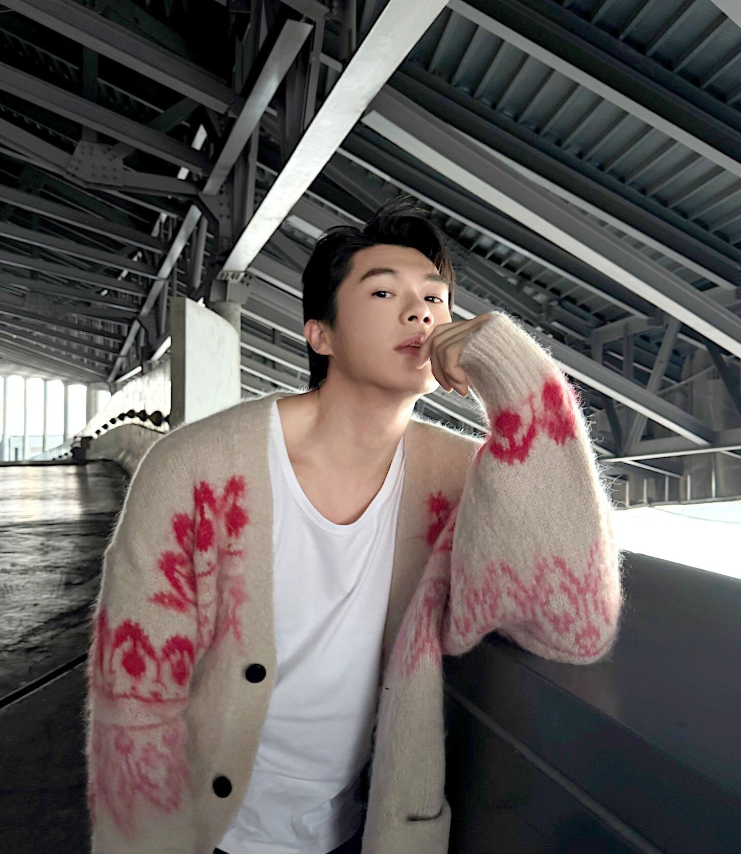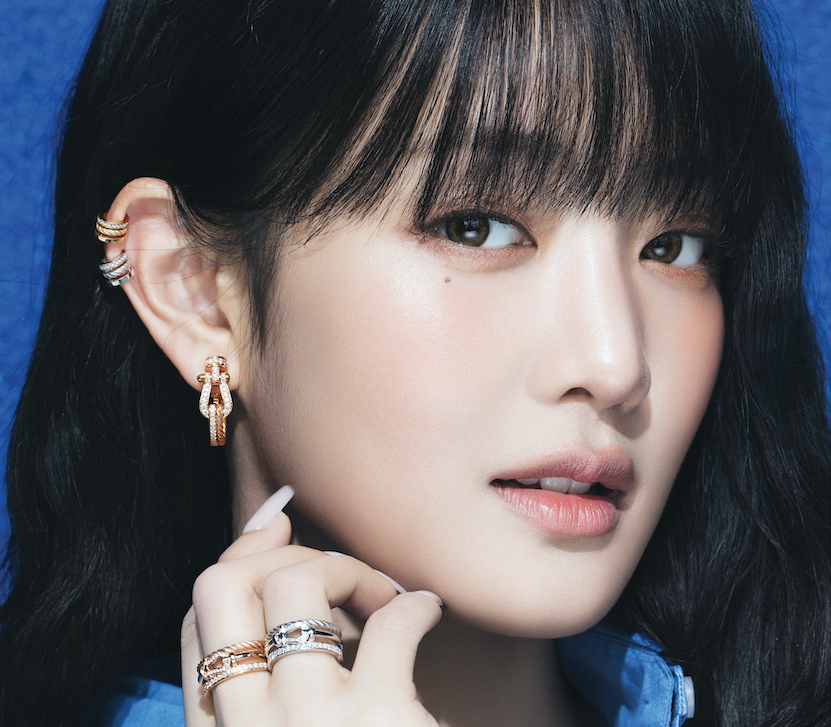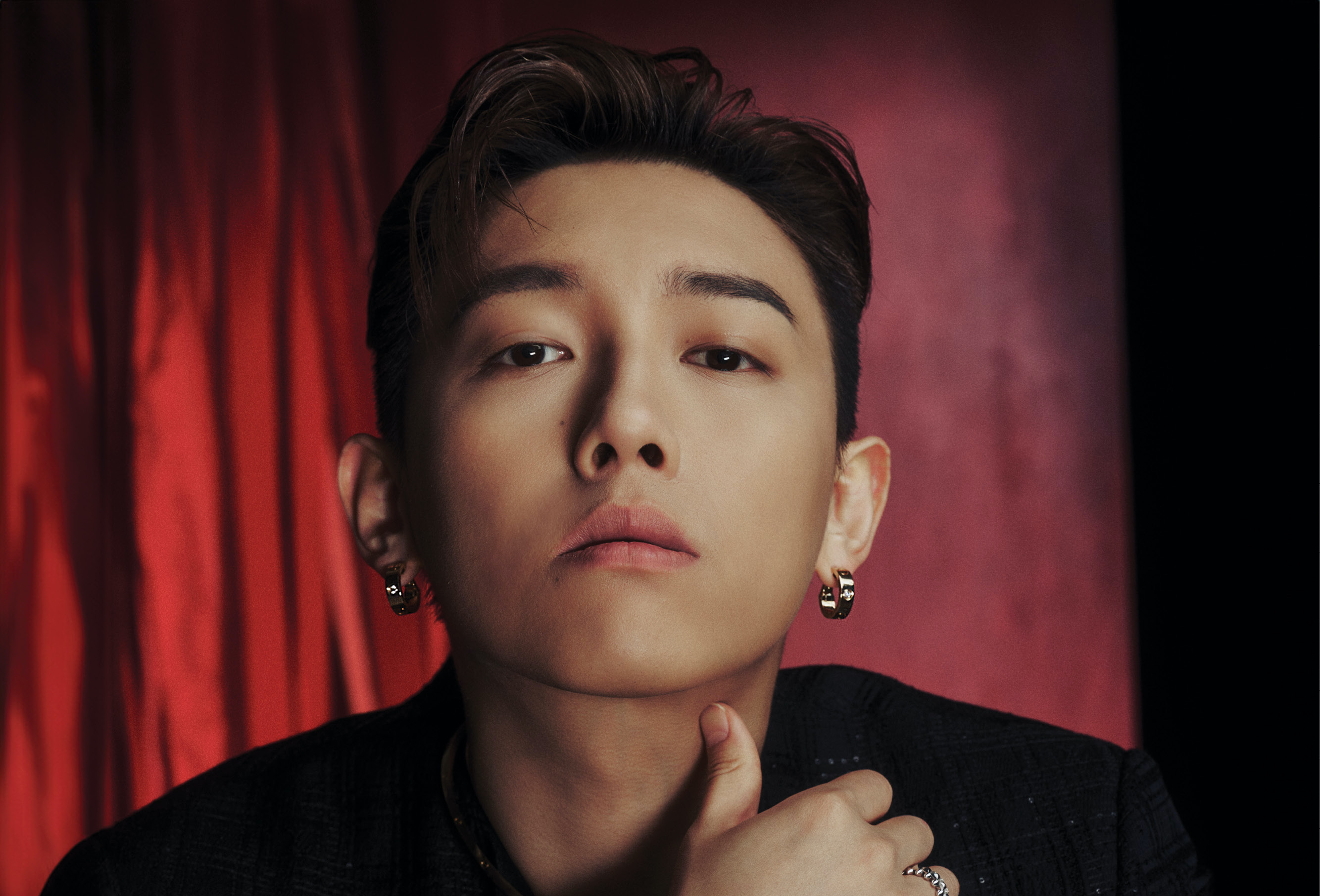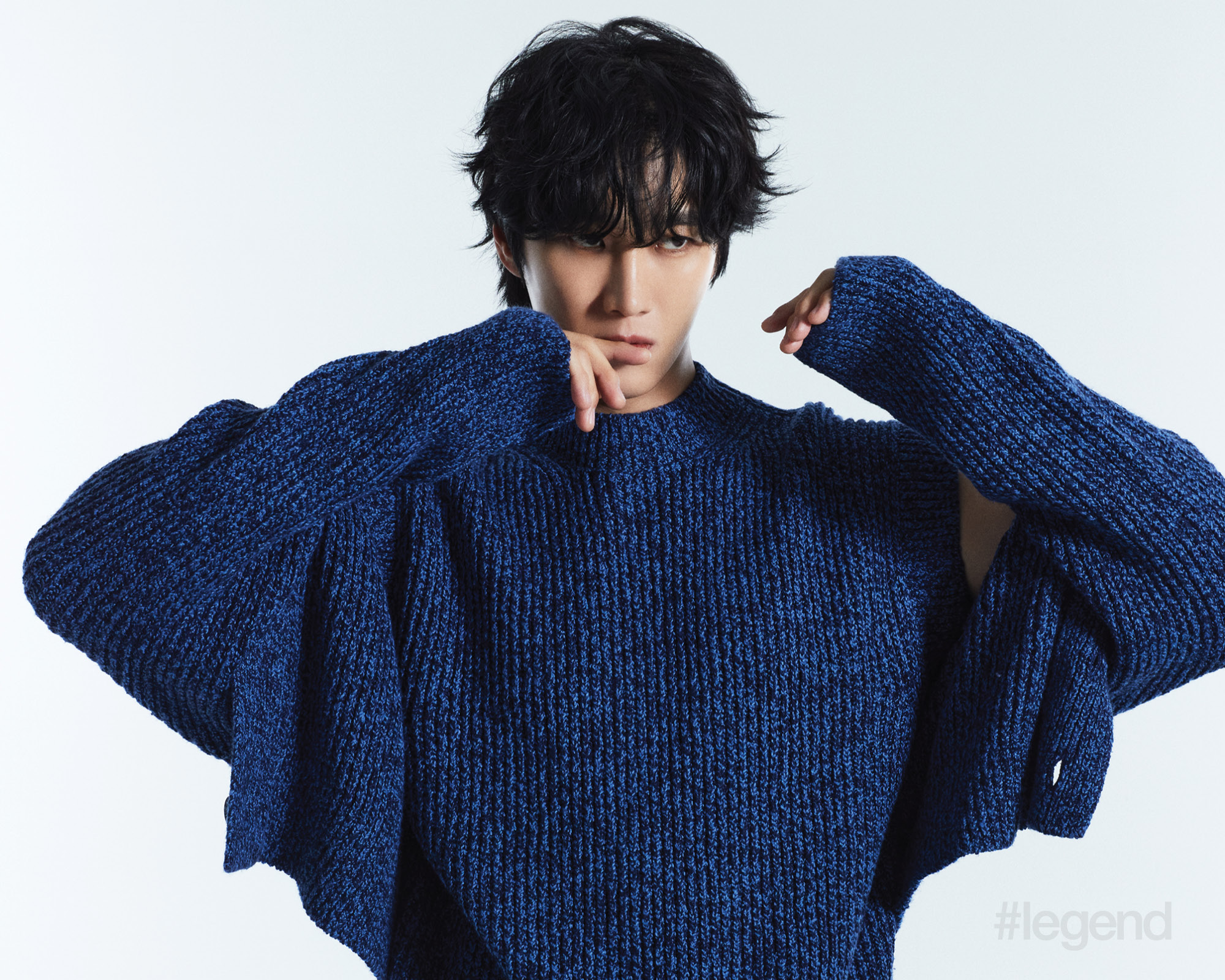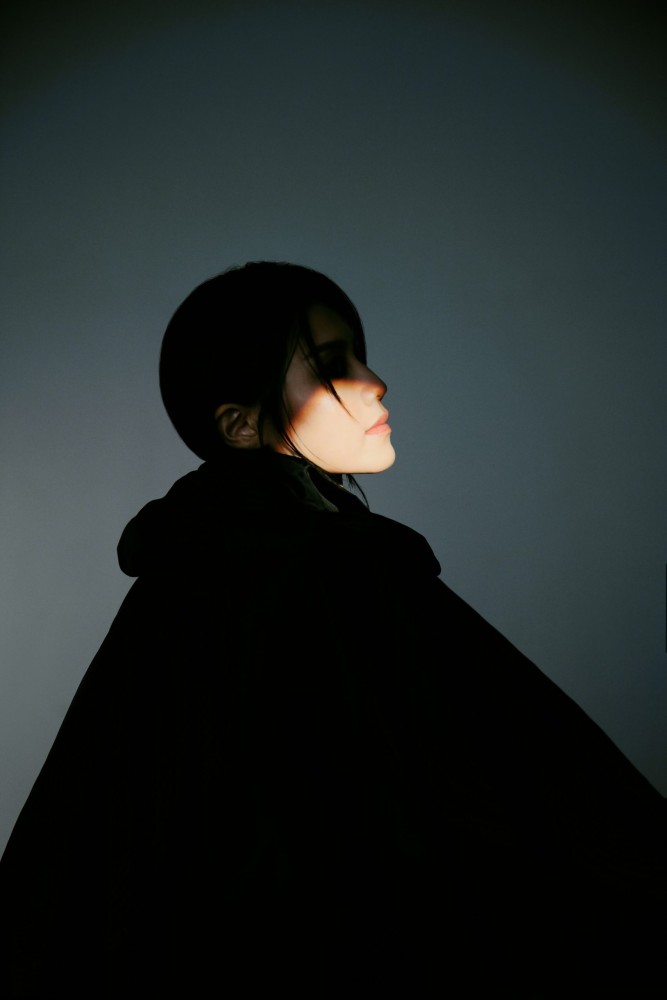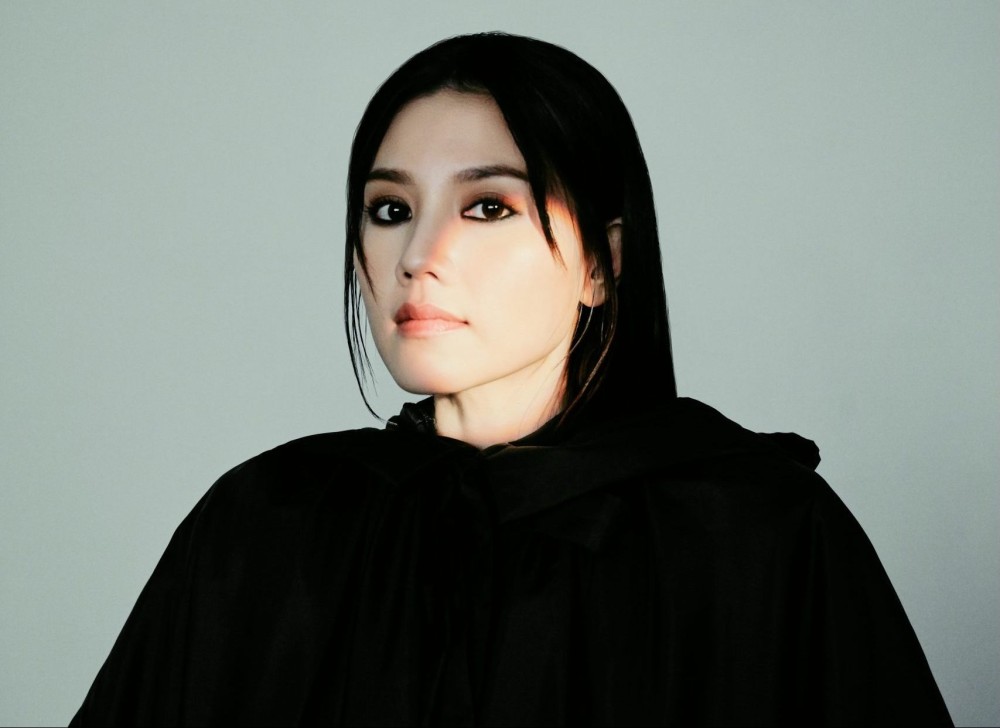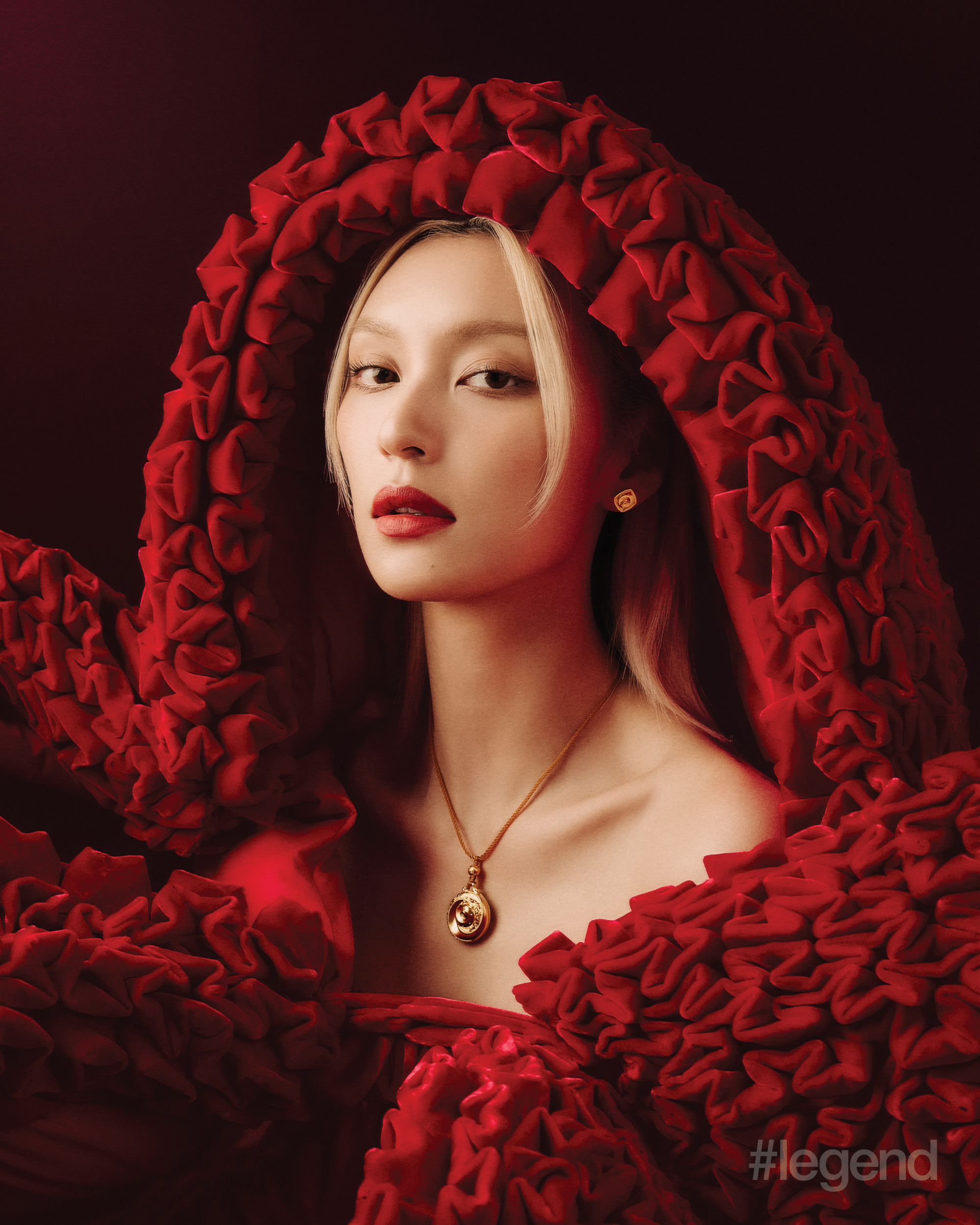Fashion cover: Chrissie Chau on her journey as an actress and most memorable moments
Jan 11, 2021
Having transitioned from modelling to acting a decade ago, Chrissie Chau has appeared in nearly 50 films and TV shows and firmly cemented her place among Hong Kong’s acting elite. With at least three projects debuting in 2021, she tells Zaneta Cheng how she worked her way up with a combination of fierce determination and infinite adaptability
We’re going to be seeing a lot of Chrissie Chau this year – on screens both big and small. First, there’s The Impossible 3 that’s just finished airing on TVB. Then All’s Well Ends Well 2020, the model-turned-actress’s first foray into Hong Kong’s popular Chinese New Year film genre, and finally the TV production Ink in Tai Pan (with Chau as the lead once again).
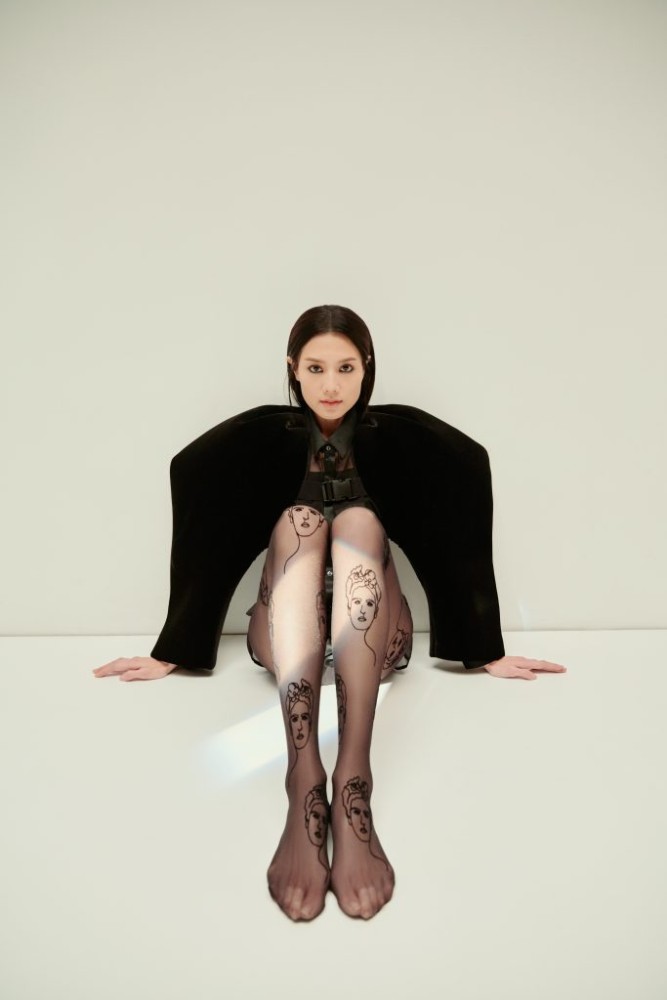
Black oversized jacket by Melitta Baumeister from Joyce
Having won accolades practically every year since 2011 – including Best Actress at the Los Angeles Movie Awards for Paper Moon (2013) and Asian New Media Film Festival for iGirl (2016) as well as Best Actress at the Hong Kong Film Critics Society Awards for the heart-warming female-focused 29+1 (2017) – you might conclude that Chau has had it lucky, if not easy. But you would be mistaken.
When Chau arrives for our shoot on a weekday morning, fresh-faced and on time, the picture of politeness and professionalism, it’s easy to overlook the fact that she might be one of the hardest-working and most resilient actresses of her generation. Since gaining fame as a model in the early aughts, Chau has battled her share of ups and downs in an industry where judgements and criticism fly as hard and fast as the kicks and punches she’s throwing in The Impossible 3 and All’s Well Ends Well 2020 put together. Anyone a smidgen less hardy would have buckled under the pressure.
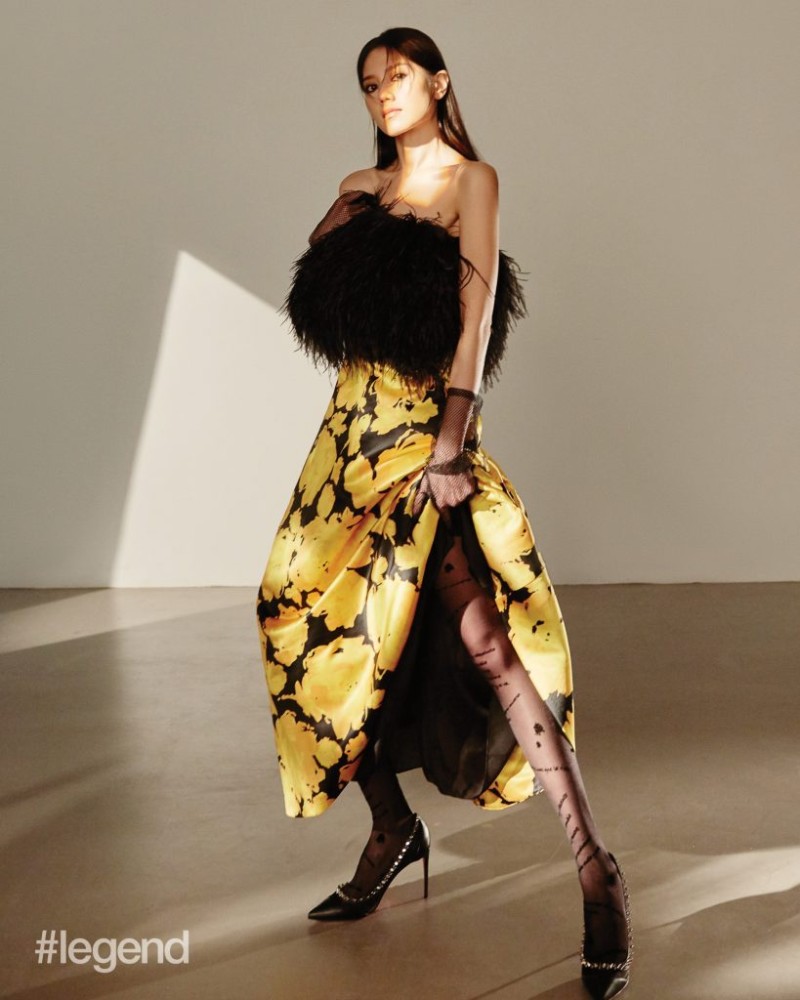
Black studded stilettos by Christian Louboutin
Instead, now in her 10th year as a performer, Chau answers every question thoughtfully and thoroughly. There’s not so much as a speck of froideur or haughtiness that tends to develop in those who have seen such continued success. It seems she has withstood it all thanks to a combination of self-trained durability, unyielding ambition and curiosity for her métier that has kept her grounded and laser-focused on her professional aspirations. Sitting in her make-up chair having her eyelashes curled as she answers questions, Chau is in awe one moment about how far television acting has brought her skill set and chit-chatting the next about how much she’d like to go on holiday to Japan.
What was 2020 like for you? In what ways did you have to adapt, and did you encounter any difficulties?
The most difficult moment I encountered was when I was unable to purchase any masks.
At the beginning of the year, you mean?
At the beginning of the year there were no masks anywhere because of supply shortages. It was terrible because I was watching television and saw that people were fighting over masks, and robbing tissues and toilet paper. And I thought, “What is happening to the world?”
In terms of work, though, the biggest change was that a lot of movies couldn’t be filmed and many projects couldn’t be followed through on. But surprisingly there were more opportunities for me to do TV. I think it’s because people had more time to stay at home and TVs are still what people tune in to to check what’s happening in the world. Also, it’s still a basic form of entertainment.
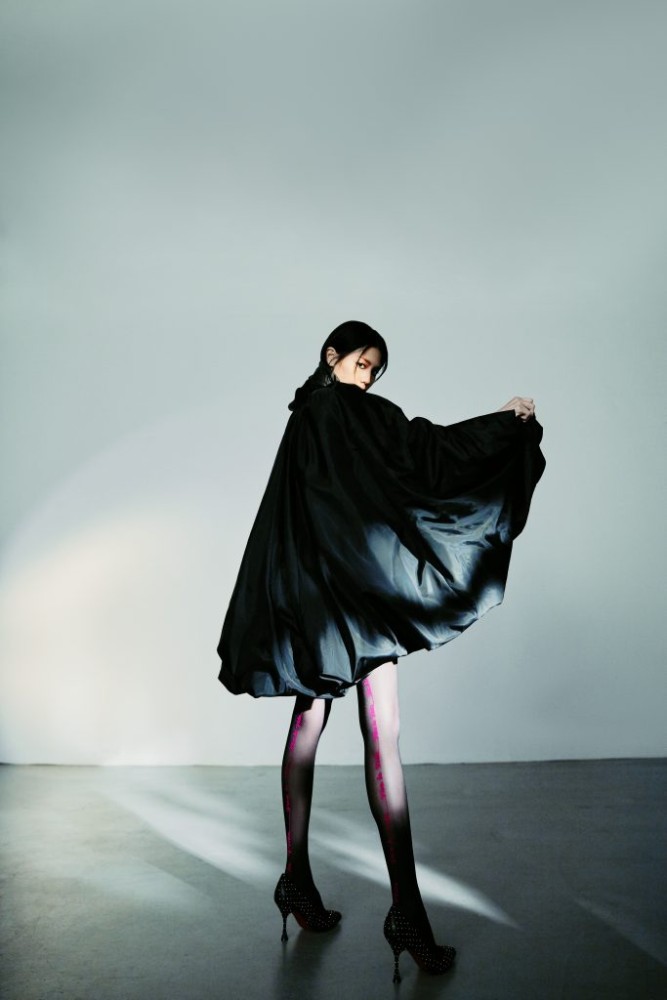
Black studded heels by Christian Louboutin
Most meetings I had were about TV shows, so I think I was pretty lucky because I know many things were halted. For a moment, though, I did feel like I had suddenly lost my job. Even though it was quite unstable before, I never worried about what was coming next. Before, when I finished filming a movie, I would have an idea about other projects that were in the pipeline but this pandemic made me feel uncertain about a lot of things and I couldn’t prepare for any of it.
What’s the difference for you between preparing and shooting a movie versus a TV show?
There’s definitely a big difference. There aren’t as many exciting things happening in each scene in a TV show because the story is longer and told through multiple episodes. In movies, the story is told in one to two hours so everything is more condensed and every scene feels more exciting even when I’m reading the script. Even a single shot can portray a multitude of meanings in a movie whereas TV shows tend to portray the events of everyday life.
A TV show could focus on unassuming things like the people around us in our daily lives and there will always be someone who’s going to watch it. For example, my mum. I don’t know why she loves watching TV shows with unexciting plotlines. I tell her, “Life is already so sad. Why are you watching shows about conflicts between in-laws?” But she finds it hilarious.
TV shows are harder to film than movies for me. There’s more dialogue, so more lines to remember. You also need to know the storyline sequence because if there are a lot of scenes in between that you’re not in, you still have to be able to piece the story together and figure out what happened in the scene prior to the one that you’re shooting and why you’re in that scene. I also feel that for TV shows you have to be even more expressive with your emotions compared to movies.
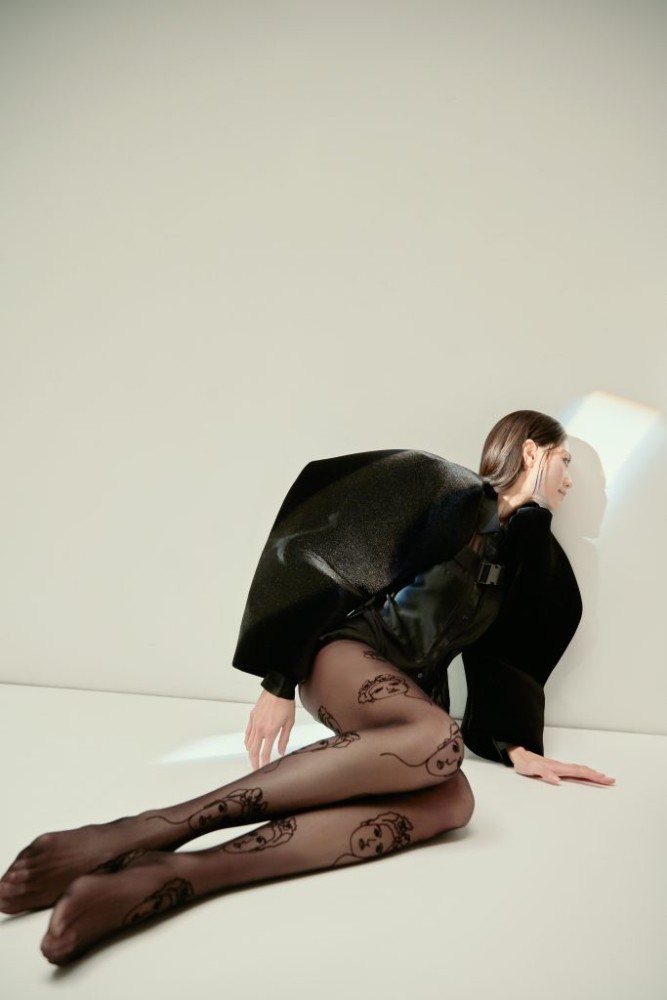
Black oversized jacket by Melitta Baumeister from Joyce
I also realised that in TV shows, a character’s emotions come and go really quickly. So if in one episode my character has to cry in multiple scenes, I will go crazy. But movies let you slowly develop those emotions. There’s none of that in TV. If you need to film 20 scenes that day, you can only run the scene once or twice before the camera rolls. I didn’t think this was possible for me before but after going through it I realise that it is. Once you film a show every day, you feel like you’ve become that person. Even though it’s filmed out of sequence, once you’re in a position where you’re forced to film 20 scenes a day, you realise you can do it. I didn’t think I could memorise so many lines but I realised I could. So many things were forced out of me.
What made you decide to do The Impossible 3, which has just finished airing?
I loved the script because it felt like a movie. The story is very condensed – only six episodes. I thought the screenwriter did a great job and I like condensed stories. Every character’s appearance feels necessary to the story and the plot is different. It’s between fantasy and reality with a character that has two identities. I’ve always wanted a role as a special agent so I can show off my moves. I go to the gym regularly and I box so I thought it would be fun to shoot a classic police and criminal story where everybody has to hold a gun and look badass. I really like Lara Croft and it just so happens that in this show my character’s name is Lara so my dream kind of came true in this show.
You started off as a model before you dove into acting and now your repertoire includes romance, period Chinese and action. Have you always been so adaptable? Trying to master such a range is certainly not easy.
I would say that my adaptability is pretty strong. It might be due to my childhood and the various experiences I’ve had growing up. When I was young, I always had to live in other people’s houses. My parents came to Hong Kong first, and my brother and I stayed in Chaozhou with my aunt who raised us. So, since I was a baby I was living in different people’s houses. Then around nine or 10, my brother and I lived together by ourselves and for meals we’d go to our relatives’ houses. I think from even a young age I was able to quickly adapt to different environments.
When I came to Hong Kong, I had to adapt to Cantonese and a new school. After a year in school, it closed down and I had to go to another school and adapt to new surroundings again. I remember when I was young I would get car sick, but I realised after coming to Hong Kong that cars are essential if I wanted to get around so that meant I just had to get used to riding in cars. After a while, it felt normal.
Whenever I feel like I can’t do something I know that I actually can and it’s just a matter of getting used to it. I quite like going to different places and I think it’s led to my not liking to stick to one job at one place and that’s why I became a model. I could go to different places and fly to different countries for photo shoots and I would take care of everything by myself
Even now if I feel frightened, my expression remains calm. Maybe because I’m used to it. Ever since I was a kid, if I got sick I’d worry that my mum would have to come back and I didn’t want her to so I would stay calm and tell my relatives that I was fine. I feel like I developed a strong facial expression because that’s my armour to ensure that no one will take advantage of me. When I go to foreign places alone, I don’t find men coming up to me. Maybe it’s because my face carries a “don’t you dare come near me” vibe. Up to now, I’ve never faced much danger because my face and my aura protect me.
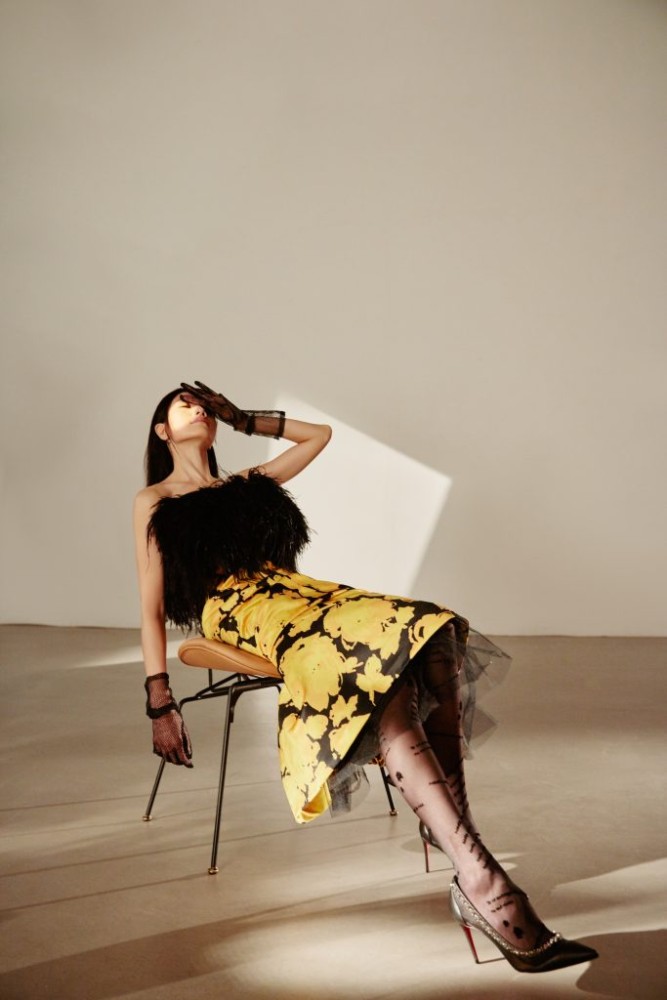
Black studded stilettos by Christian Louboutin
But what about harder times that were less easy to overcome?
I think there were difficulties at each stage of my life but I always concentrated on finishing the job and focusing only on the here and now. I’d tell myself that if I hang in there for a little longer, it will pass and nothing is too difficult to accomplish.
Are you always this steady and resolute? Surely sometimes you must be compulsive.
I’m definitely compulsive. Whenever I had to make a decision, my younger self would jump in head first and worry about the consequences later.
When I first started modelling, I decided to quit my job at the time because I preferred to model. My mother told me to look for a steadier job, but I ignored her and did what I wanted. I told myself that even if I bombed and had $2 left, I would try it out for a year. I’m the type that has to try something in order to be satisfied and if I fail, then so be it.
What about acting then? How did you make the transition and were you nervous?
Yeah, I was nervous. I remember back then I never thought I’d receive as much feedback as I did after releasing my photo book in 2009. So many unforeseen things happened, and I worried that I wouldn’t be able to pursue a career as an actress. Would I forever be typecast as the scantily dressed girl or be in swimsuits in every movie going forward? I don’t mind being sexy and swimsuits are fine, but would I just make an appearance and have that be it forever? Would I only be standing and walking here and there?
My first movie was a horror film and I thought that was great. I never thought they would find someone with a sexy image for a horror film and I was even the main female lead. That was a first for me. My other roles before that were very minor and it was the first time I received such a thick script. I was obviously very excited because I wanted to be an actress, but once I received the script I realised I didn’t actually know how to act. I didn’t know how or what to prepare and other than reading over the script I didn’t know what else to do. I heard that people marked up their scripts, but I didn’t even know what or where to begin marking.
So how did you learn?
I think it’s after gaining some actual experience and from talking to colleagues on set. When I first started, I was always getting yelled at – “Find the light! Look for the camera!” I’d be really nervous about getting in the right position but I’d always block someone and get yelled at. I guess I learned as I watched other actors and I always try to talk things through with the director and my cast members. But I do think watching someone act in real life is the fastest way to learn.
Are you feeling better about it these days?
I don’t think I’ll ever feel that I’m hunky dory. There’s something new to learn every time I work on a different project. I feel nervous every time but I enjoy the feeling. I don’t ever want it to get to a point where shooting something feels like “work”. If that day comes, I probably won’t want to film anymore. I don’t ever want a day where I have facial expressions one, two and three and once the camera starts to roll, I robotically dole those out. I doubt that will happen, though, because I’m still learning and I still feel excitement each time I meet a new director, new role or new partner.
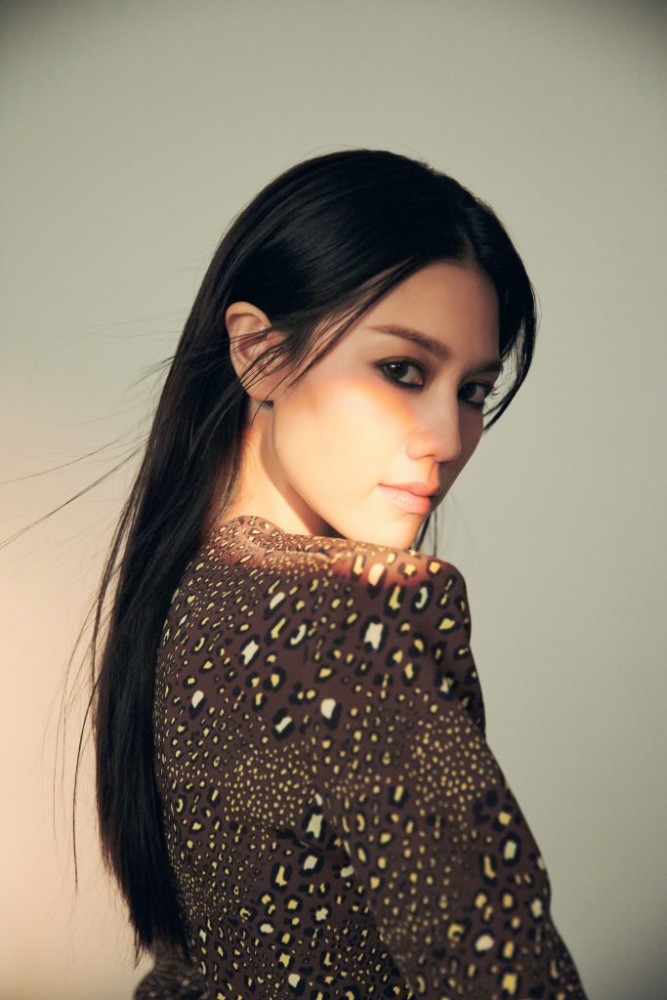
What’s one of the most memorable moments of your acting career?
Shooting Break Up 100 was very memorable. I remember when I first started in this industry, my schedule was packed. I was open to trying anything because I wanted to learn and thought that one day if I were to receive a role that I really liked, I wouldn’t be a blank slate. So time was super tight for me. In the daytime I would film one thing, then in the night I would film something else. I’d sleep two hours in a week but during that time I didn’t know what acting was, I just wanted to know what it was like.
Break Up 100 felt very different because it was my first time to cry while listening to the director, Lawrence Cheng Tan-shui, talk through the story. I could visualise the entire story so clearly in my mind and when I got home, I read through it very quickly and immediately wanted to read it again. After each read, I would have different feelings and I would cry while reading it. It was amazing and I realised that a good script and a role that I’m into can make me feel this way.
I also realised that on the planet there existed a director who would declare to all on set, “Let’s get this done; I want to get off work by 8!” The best thing was that the director wanted everyone, including the crew, to run through it once so that the actors would know how the camera was going to move and the camera would know how the actors moved. Then once the camera starts rolling, none of the actors would have to be aware of the machines and could be more immersed in the scene and act naturally because all the preparation work had been done.
I was also told to wear clothes that covered me up to my neck and to not wear make-up or to make myself look too pretty. That was a first. It was the first time a director told me to fully cover up my body, so I think he was very brave. He also told me to cut my hair and, of course, I cut my hair.
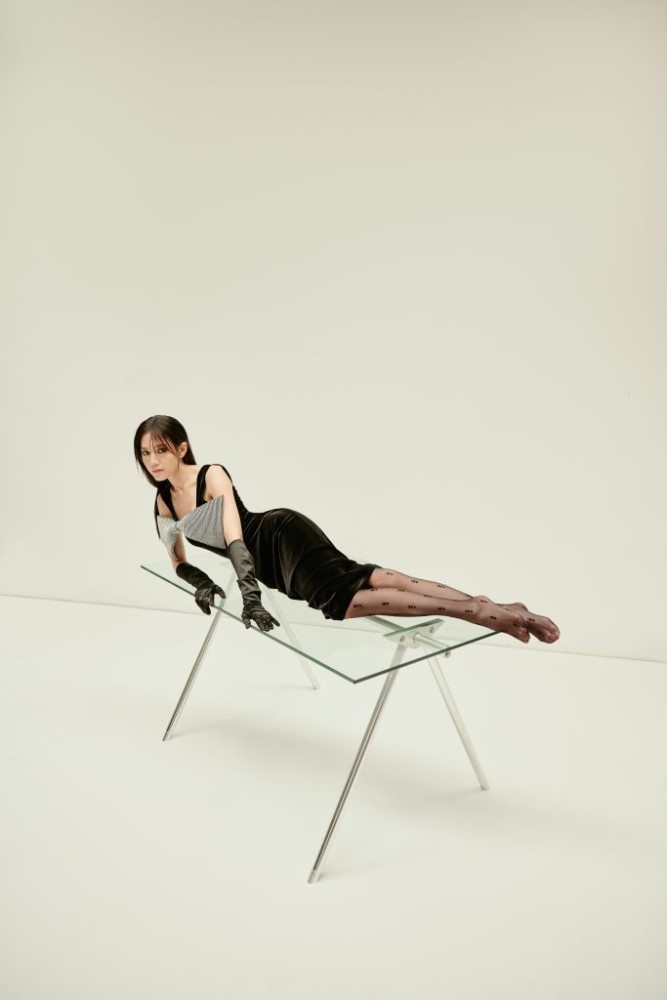
You’ve been in the industry for 10 years now. If someone came to you for advice on whether to work in entertainment, what would you say to them?
Don’t join this industry unless you love it and are determined that there’s nothing else you want to do. You need to love it. I do think there are a lot more avenues than there used to be, and you don’t need to start at broadcasting stations or talent competitions. The Internet can probably get you further, outside of Hong Kong even. Creativity is the most valuable asset these days anyway. To be honest, a decade in the industry doesn’t feel very long. I still feel like there are a lot of unknowns, a lot of unpredictability.
In the beginning, I took a long time to think about whether to sign an acting contract or not. Modelling was already very unstable and I thought, well, I can’t be a model forever. Models sell product, it’s not really about the person. But an actress, I felt, was different.
There’s no age limit or beauty standard. You can be placed in any story and there are a lot of characters. You can be realistic, you can have a strong character, you can have a pretty face or you can have an average face, it’s all okay. There’s so much to try and you don’t have to be pretty to do it. When I start getting wrinkles at 50 or 60, I can still shoot movies.
Another reason I came into this industry is because I don’t have many skills. As a kid, I didn’t have anything to do for fun. There weren’t cinemas in my village in Chaozhou. I would jump rope or play on rooftops. There was no fast food, no amusement parks, no parks, it was a very boring place and one summer I was sick and couldn’t go out so I spent my days watching and re-watching Hong Kong movies from the 1980s. I watched them non-stop and I think that might have something to do with it as well.
“I think there were difficulties at each stage of my life but I always concentrated on finishing the job and focusing only on the here and now. I’d tell myself that if I hang in there for a little longer, it will pass and nothing is too difficult to accomplish” – Chrissie Chau
What about life now, given you’ve dedicated so much of it to your work?
I really feel like I lived life in 2020, you know? People always used to ask me if I had a life before because I was working and flying everywhere. [Last year] I seriously lived. I learned all the things I wanted to learn but didn’t have time to do before. I painted, made ceramics, redecorated my house. I had more time with friends and family, and even went on dates. Before the pandemic I’d always have an excuse because I was working or not in town, but in 2020 everyone was forced to take a break. You think you can’t go on holiday but suddenly you find you can manage. There are a lot of things people might feel like they can’t handle but this experience has made everyone realise that, indeed, they can.
Now you know what works and what doesn’t.
After some accomplishments and some failures, you know what to accept and what to avoid. I think failures are good. You need them for an interesting life. Life would be too boring without them. I never had the patience to cook before. Who had time to think of what to eat and how to cook it, you know? I’d be so tired once I got home, I’d go straight to bed. Now I’m like a housewife, when I’m not working I’m at home cleaning and cooking. But I have to say, experiencing this once is enough.
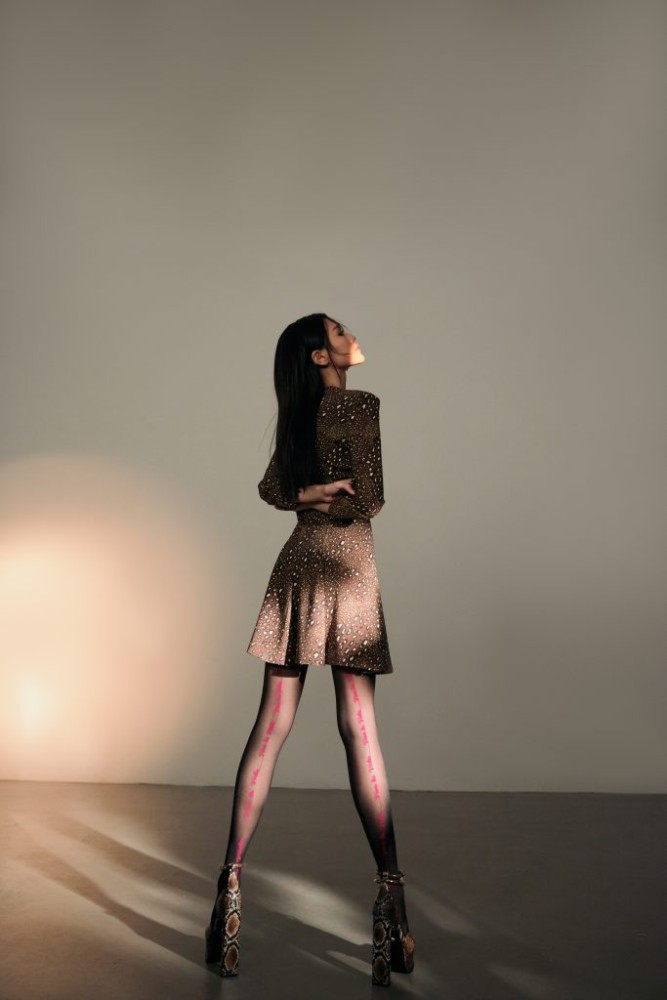
CREDITS
Photography / The Buffacow at Samagana
Cinematographer / Vincent Ip
Creative Direction / Zaneta Cheng
Styling / Daniel Cheung
Styling Assistant / Alex Loong
Make-Up / Circle Cheung at NDnco.co
Hair / Amber Tse at Il Colpo Central


